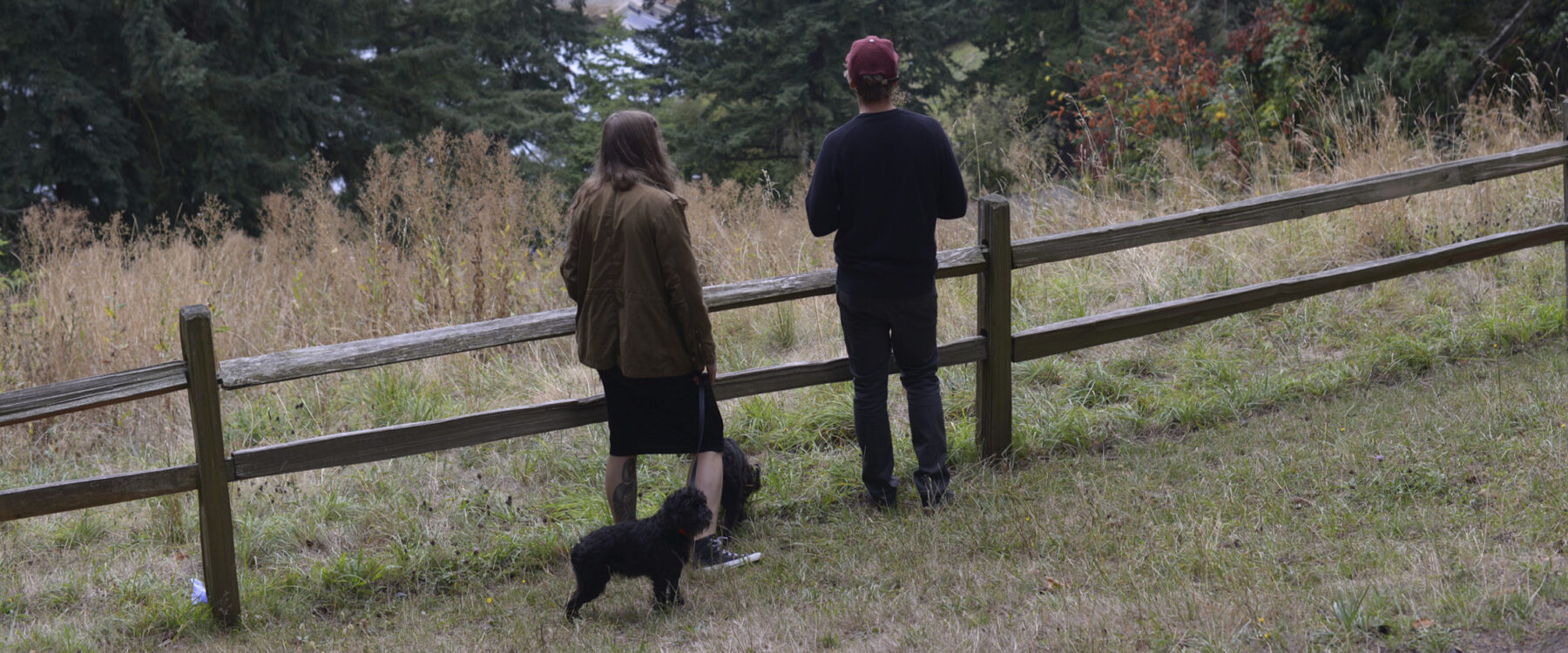What sets Heart Roasters apart from the many other coffee roasters and cafés in Portland is a discerning attention to detail.
From the painstakingly refined roast and preparation of the coffee to the carefully sourced furniture, all aspects of the café have been considered. Nothing is redundant or overlooked; it all comes together to create an atmosphere of warm hospitality that welcomes you in and invites you back.
It is with this same warmth that Rebekah and Wille Yli-Luoma, the founders of Heart, open up their home. The morning light filters in through the front blinds, illuminating their cat and two dogs nestled among lovingly selected objects and furniture, collected over years of travel and nomadic living. Calm after a morning walk in the nearby Mt. Tabor, the dogs rest, opening a moment of stillness, punctuated only by the soft gurgling of coffee brewing.
This portrait is part of our ongoing collaboration with ZEIT Online who presents a special curation of our pictures on ZEIT Magazin Online.
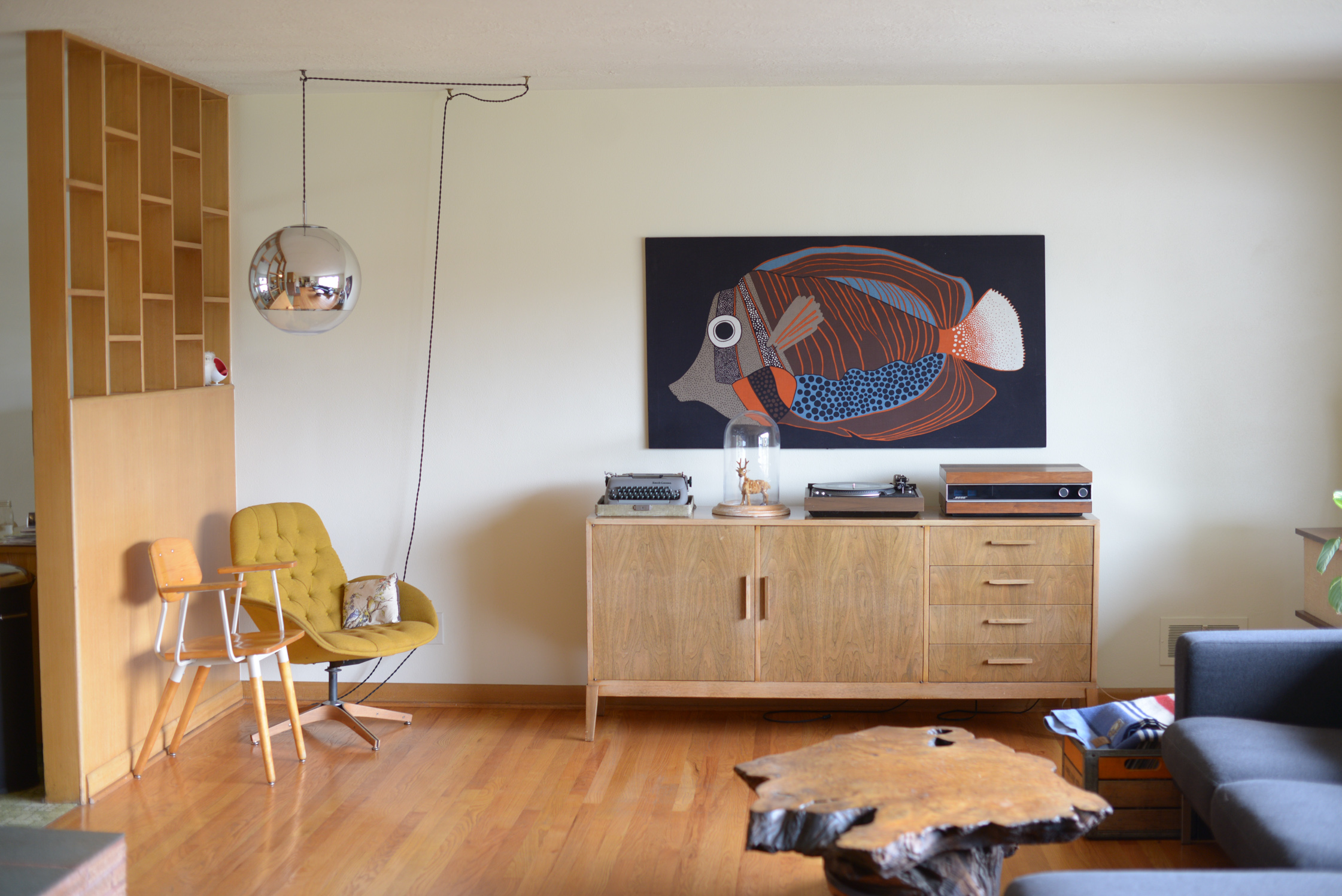
-
Starting from the very beginning, where are you both from?
Rebekah: I’m from a little town in Maine, called Topsham, 10 minutes from the coast. I moved to New Hampshire when I graduated high school then headed to Utah, where I had friends who were starting their snowboarding careers. I was really, really into snowboarding. Then I moved to Seattle to get away from snowboarding and that industry. I lived there for a while and then moved to Portland because I was coming down here so much. I really liked how comfortable it felt and I decided that I needed to live there. And I was dating him (gestures to Wille).
-
And what about you, Wille?
Wille: I was born in Turku, Finland. Ever since I was a kid I’ve been on the road, so I’ve never really had a place like that. I mean, we lived in Sweden in a town called Vattholmafor about five years, and that was a pretty long period of time for me at a younger age. Later in my teenage years, I moved to a town called Sipoo, which is outside of Helsinki. I lived there from when I was 13 to about 17 or 18, when I left home and just traveled, so those are the two staple places I’ve lived. Portland is the longest I’ve lived anywhere. In between I’ve lived in Switzerland, in Stockholm, different parts of Finland, the US, all over the place. I’ve always been on the road but now I’ve settled.
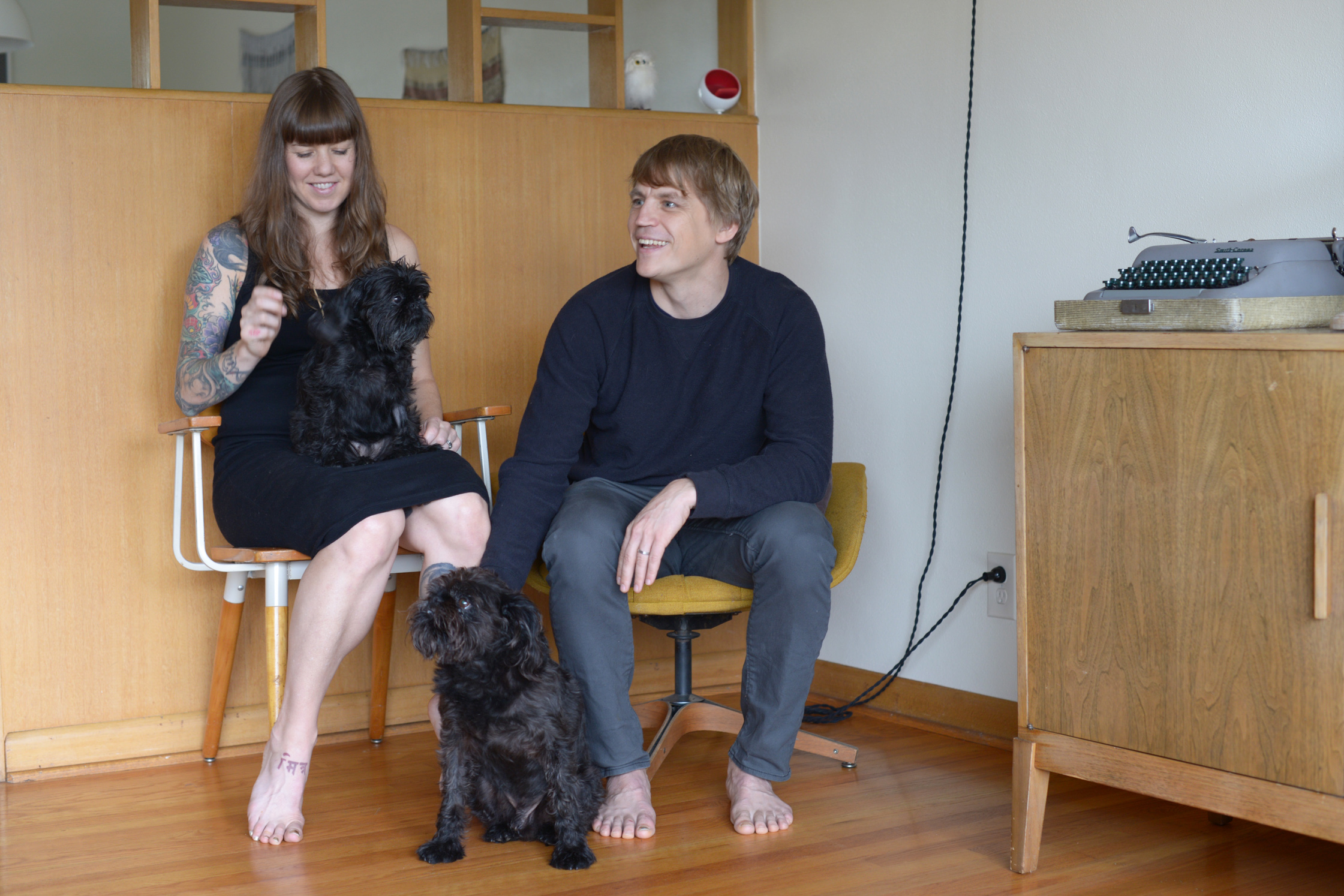
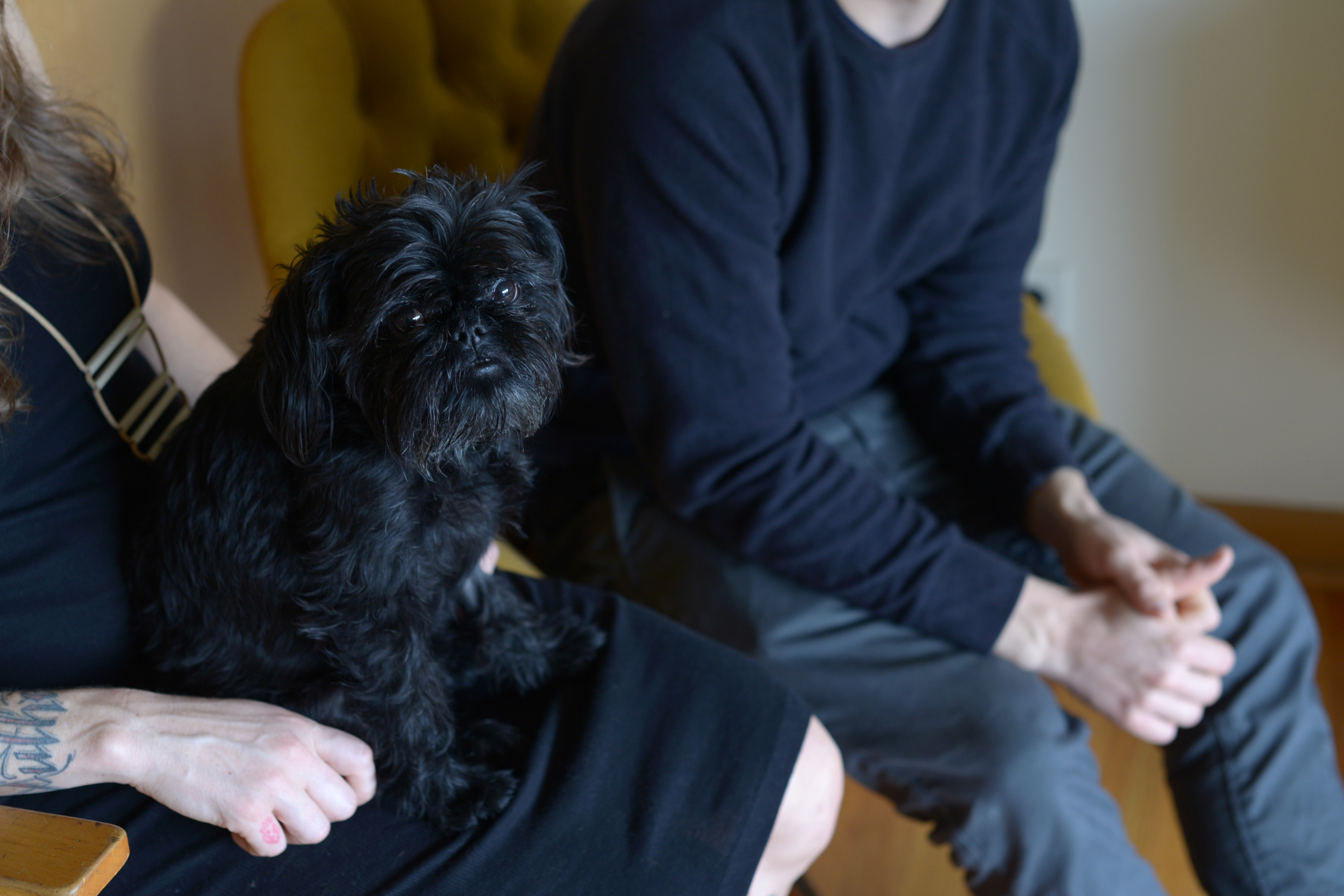
-
How often do you go back to Scandinavia? Do you think you’ll ever move back there?
Wille: I just went back this past spring. I try to make it home at least once a year, though it’s hard to plan for time off while running a business. We have talked about moving back, possibly to Sweden—who knows. It’s too early to tell. The schools are far better than here in the States and the healthcare is also better.
Rebekah: I haven’t been back to Scandinavia since I went there with Wille in 2008! With the baby’s arrival, I imagine we’ll be visiting more often though, which will be nice.
-
Congratulations on being parents-to-be, by the way!
Rebekah: Thank you! It’s pretty exciting. We’re considering having Wille speak to our daughter only in Finnish for the first few years of her life. We both think it’s important to give her the opportunity to be able to speak both Finnish and English fluently. She’ll thank us as she gets older when she can communicate with family from Finland.
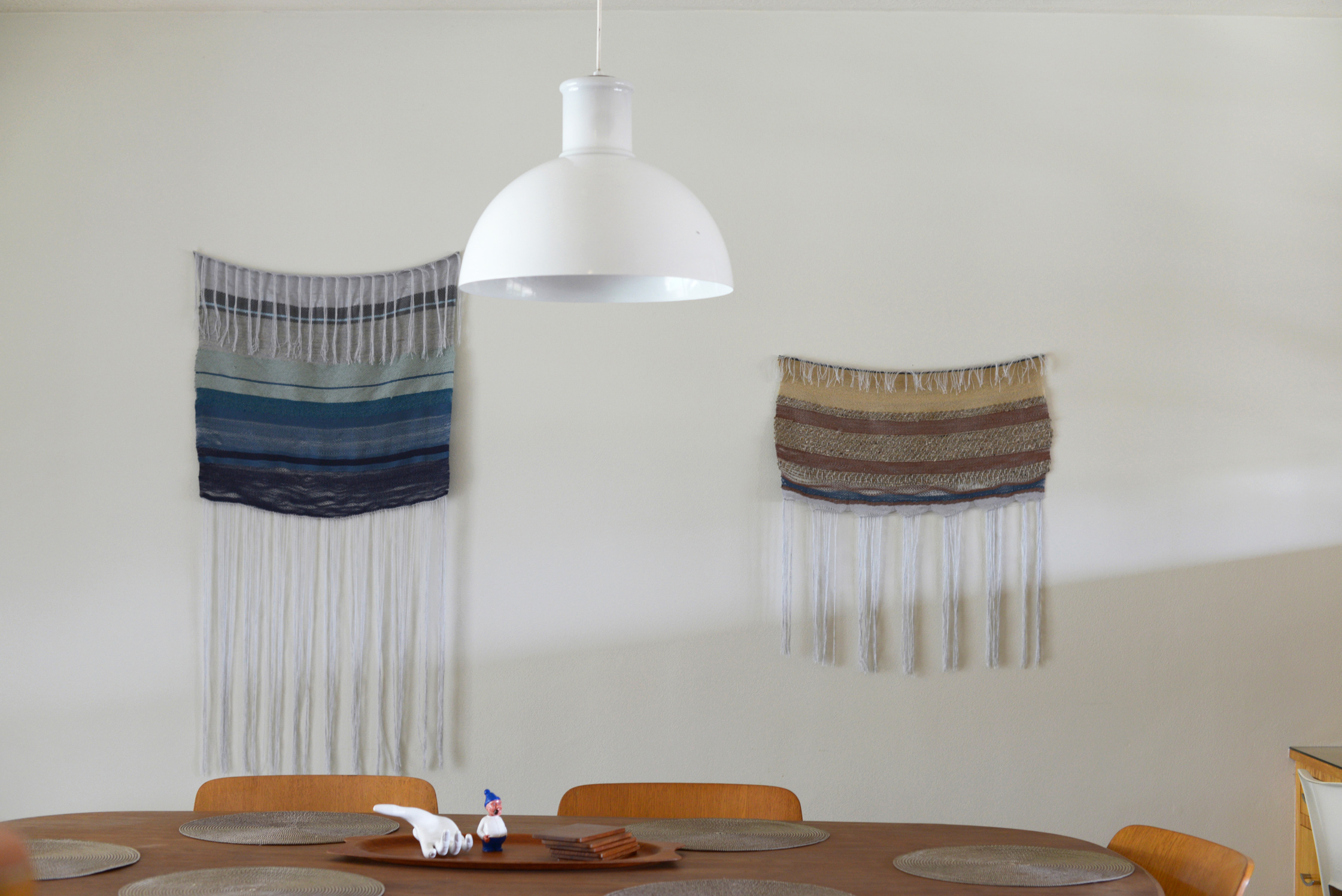
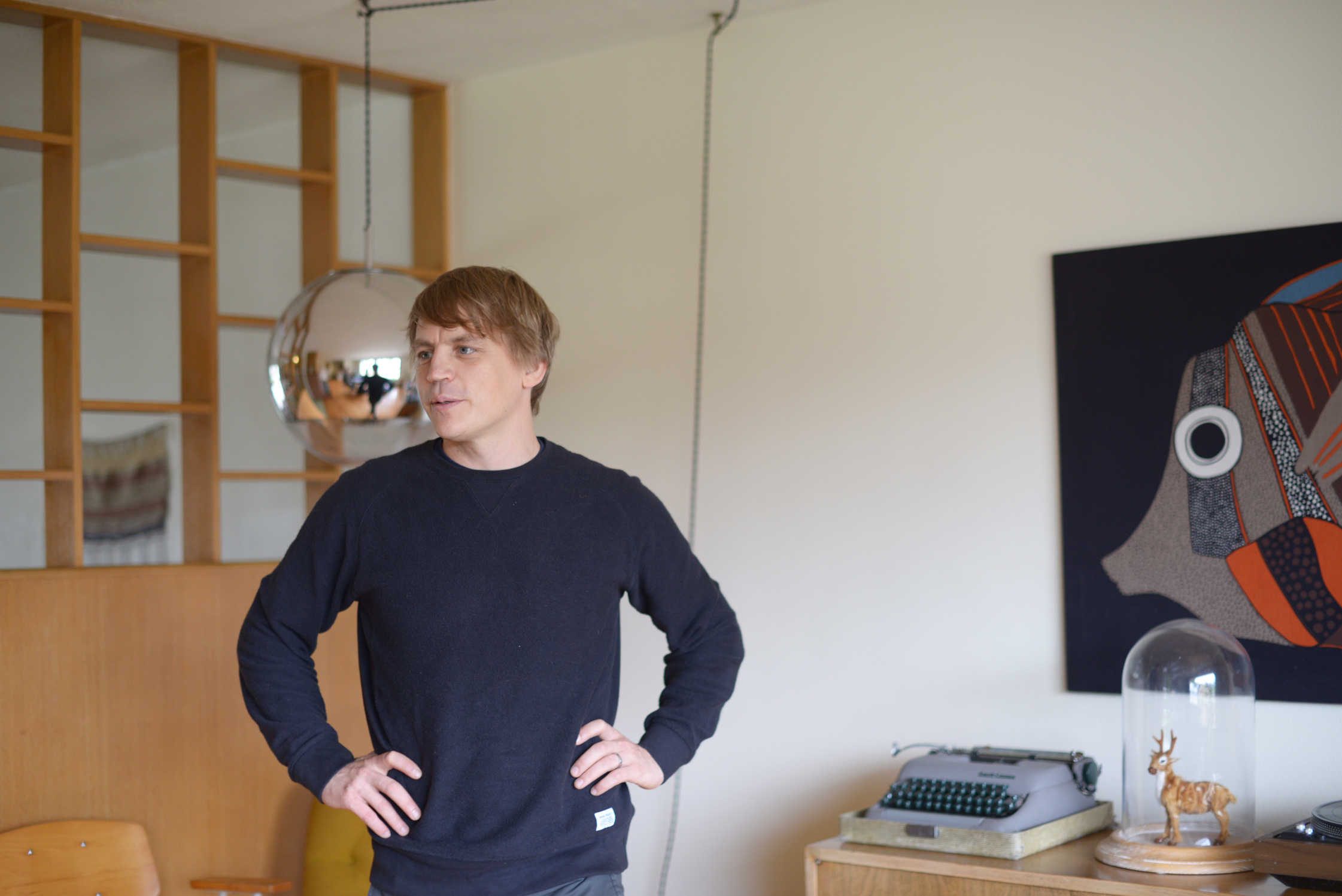
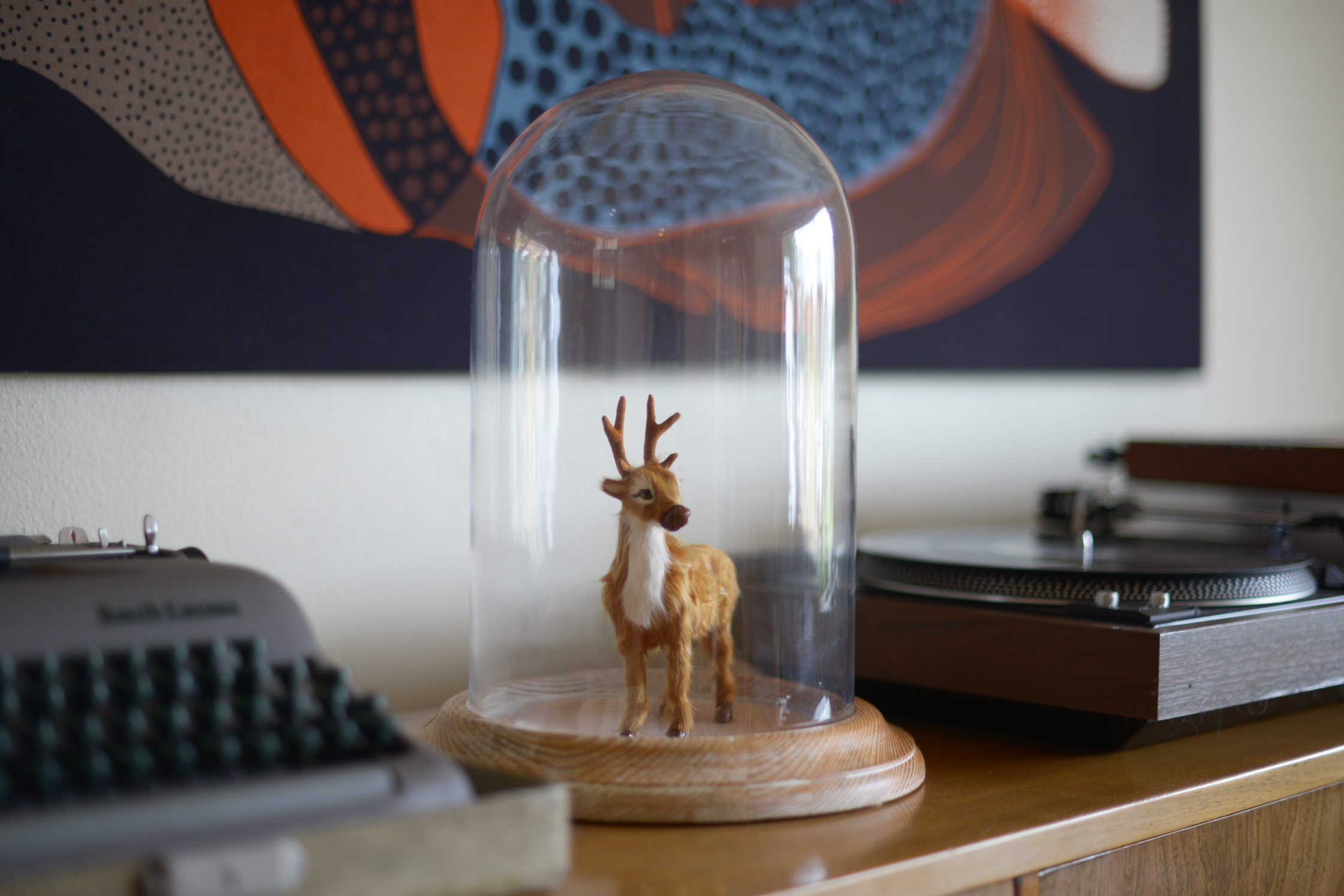
-
What made you want to settle down in Portland?
Wille: When I came here for the first time, I was about 16. Ever since then, I’ve started coming back and always really liked it, because I would go to Mount Hood and then come to the city and I would be like, “Let’s go to the camera store,” “Let’s buy some music,“ or “Let’s go to some restaurants.” It was a city with a little bit of culture, versus when I would fly in to Reno or Salt Lake City. I was snowboarding for Etnies, ThirtyTwo, Volcom, K2 Snowboards, and I/S Eyewear back then, so I was flying to LA and getting picked up by sponsors. These people couldn’t care less about concerts or restaurants. It was a very classic fake world, I would say.
-
How so?
Wille: It was just the beach, the warehouse where the company was, the hotel, some restaurants, and some weird club or whatever they would take me to, and that’s all I knew of LA. That was it. And it wasn’t even LA, it was south of LA. It just seemed like such a gross world to me that I didn’t want to be a part of it. I wanted to be in the Northwest. Since then, I’ve been back to LA and there are cool areas too, but I just wasn’t there with the right people. How’d I get off track here? (laughs) Well, when I was 21, I remember being in Portland and thinking that I actually wanted to move here, and that happened three years later. It was a long process because of my work visa and trying to get a house, so it wasn’t as easy as I thought it would be. In the meantime I was living in Stockholm, Sweden, which was great. I enjoyed it and traveled a lot there. I finally came here and I was snowboarding a lot while starting to get more and more into coffee. It was kind of a snowball effect from there. It was a hobby at first—I was snowboarding and coffee was a hobby and then…
-
And then they switched over.
Wille: They completely switched places and coffee became my job and snowboarding my hobby.
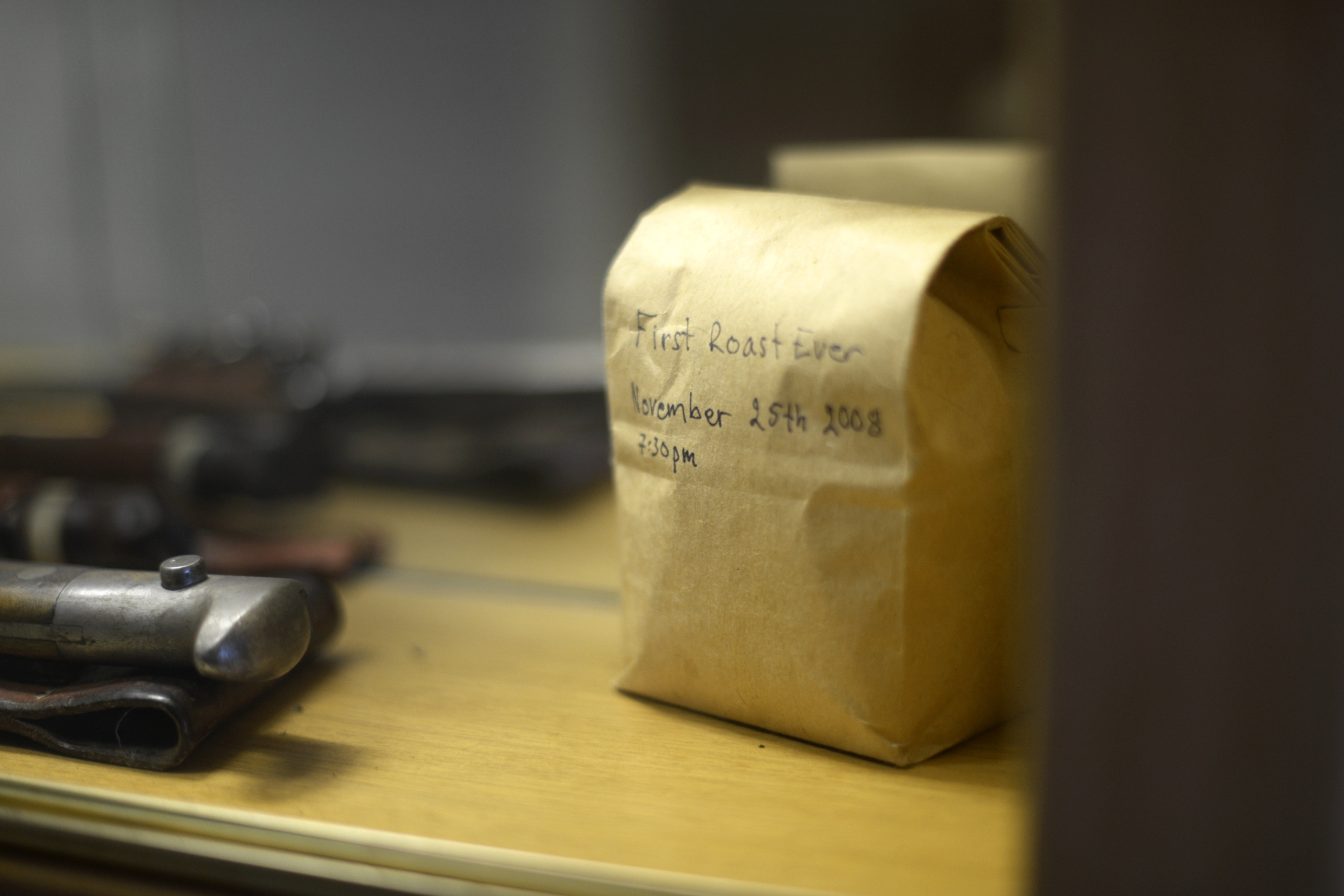
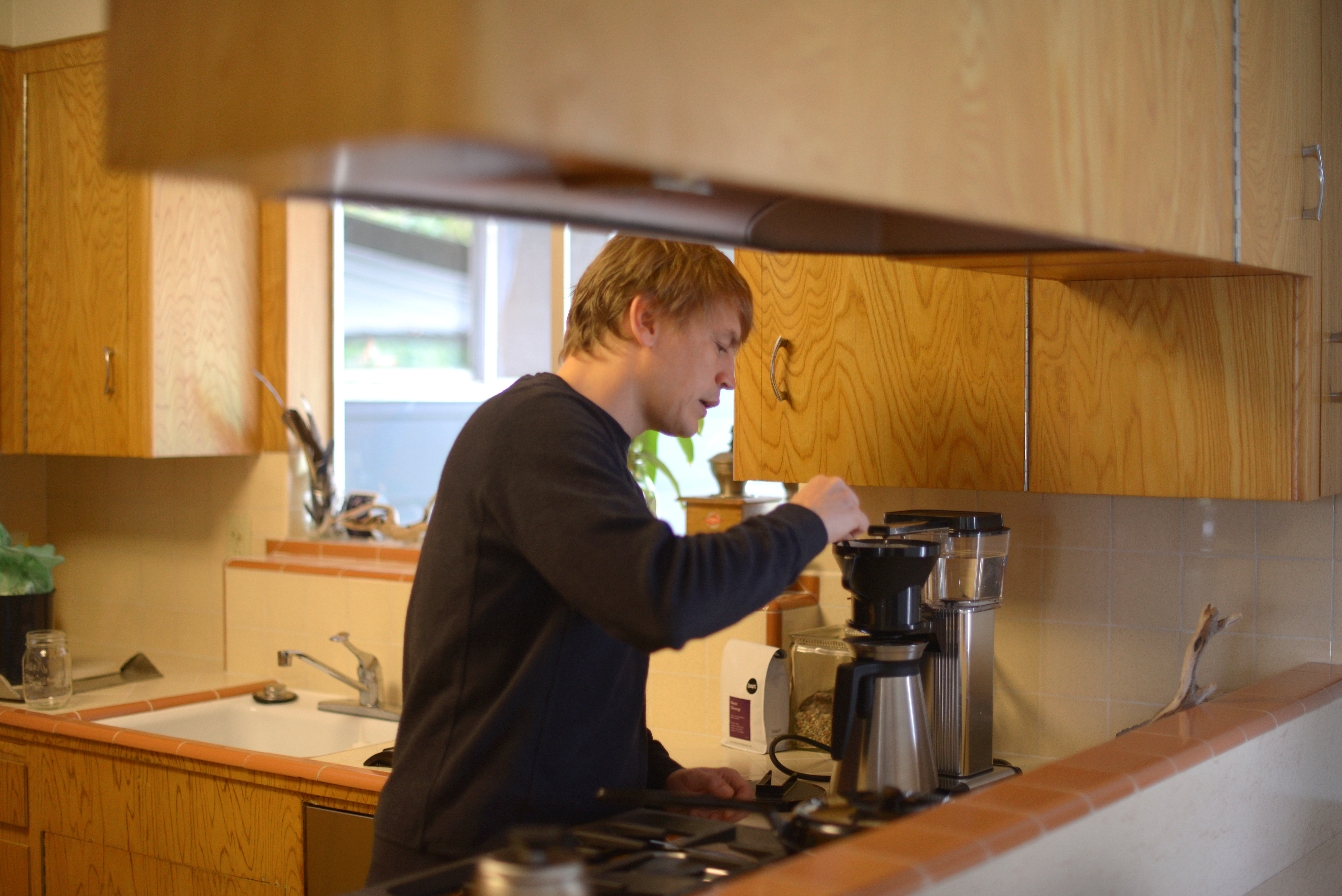
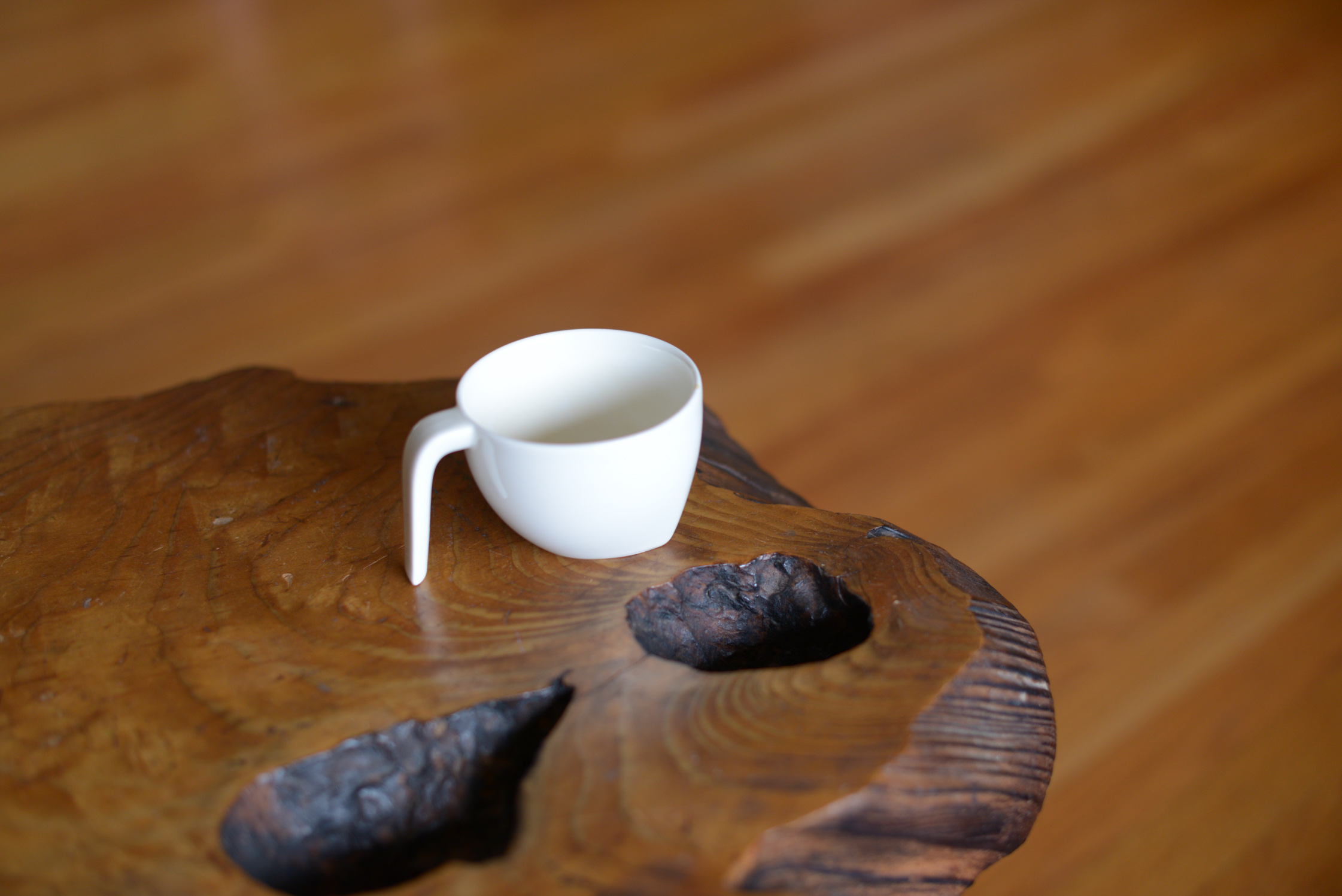
-
How did you first start getting into coffee?
Wille: I didn’t drink coffee until I was 18. I remember that I drank my first real cup of coffee when I was 18, and going to take my driver’s license test in Finland.
Rebekah: What was it? What were you drinking?
Wille: Just regular black coffee.
Rebekah: (laughs)
Wille: You just wanted me to say it was a vanilla latte or something! It wasn’t! It was my mom’s coffee. It was pretty gross—it was disgusting.
Rebekah: You didn’t like it?
Wille: I did not like it at all. But I had it, just to stay awake to take my test. You know, you have to read this big, thick book in Finland and it’s about 10 times harder to get a driver’s license than in the U.S. It’s really not the same and it’s really easy to fail. Anyways, that’s the first cup of coffee. And then I slowly was like, “Oh, this is kind of good.”
Rebekah: It works! (laughs)
Wille: It works! And then on trips when I would be tired I’d want to stop at Starbucks or something, to get a vanilla latte or some coffee just to stay awake. Slowly that turned into more of me feeling like having an afternoon coffee, but for that I wanted something better. When I moved to Stockholm, I started going to a small coffee shop where I would get lattes. Eventually the owner convinced me to try an espresso, so I did, and even though it really wasn’t that good, it kind of snowballed into realizing that there are so many different things about coffee. So when I came to Portland, I already had some sort of understanding of coffee. Then I think that here, with Stumptown and all the local coffee shops taking coffee so seriously, it was like heaven. It was like, “Oh man, I can go to this place and get a really good coffee.” Basically, that’s how it went from there. Drinking at local coffee shops, tasting the coffee, and realizing that there are all these variables that you don’t think about normally. I slowly got into making coffee and espresso at home, and that went from having commercial machines in the kitchen, to me buying a sample roaster and having our basement just filled with bags of green coffee. That’s what I was doing at the time, roasting coffee. You’d be like, “What is Wille doing? He’s probably roasting coffee.” Finally, I realized that I should maybe try to actually make this into a living, since it was how I was spending my time and I enjoyed it.
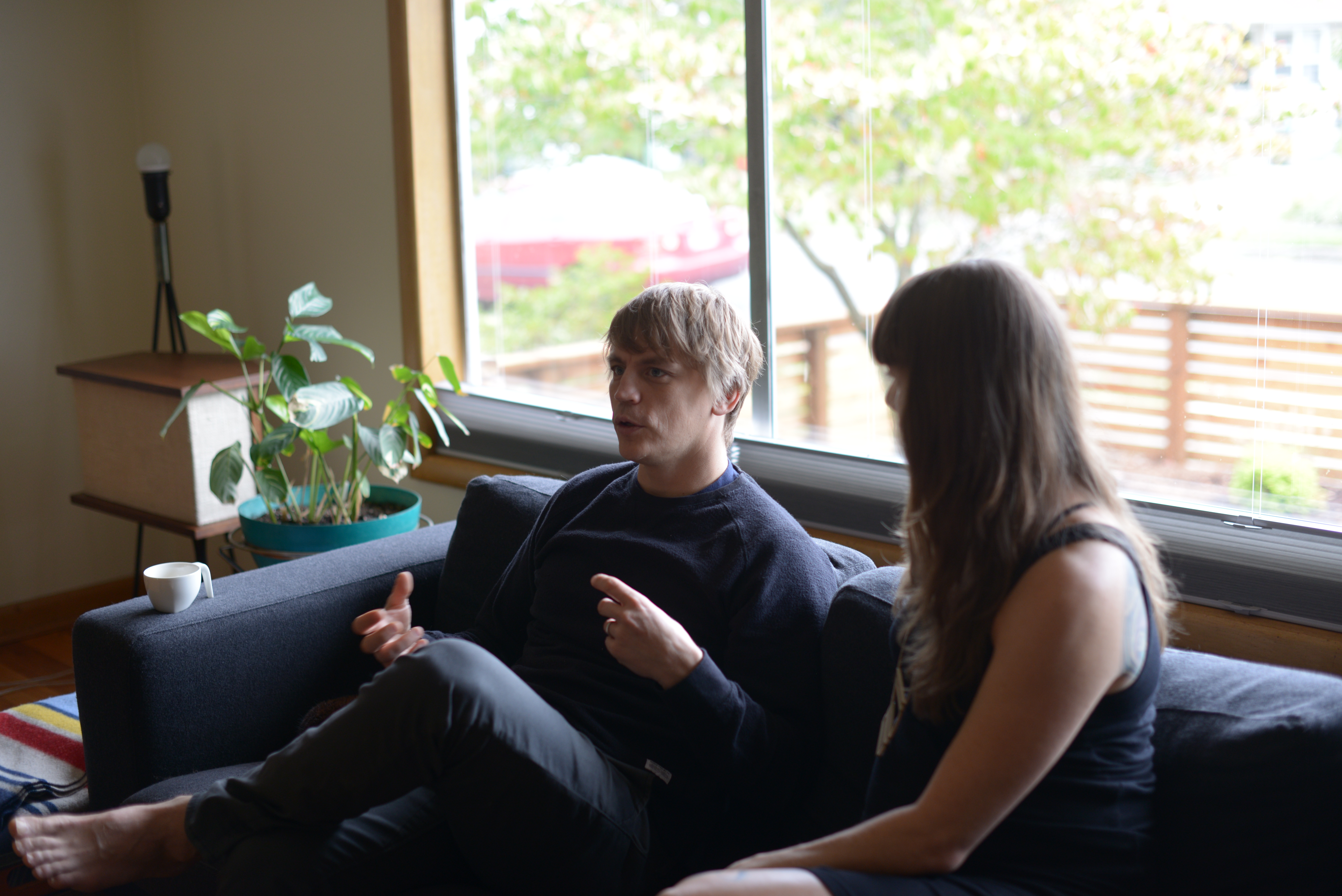
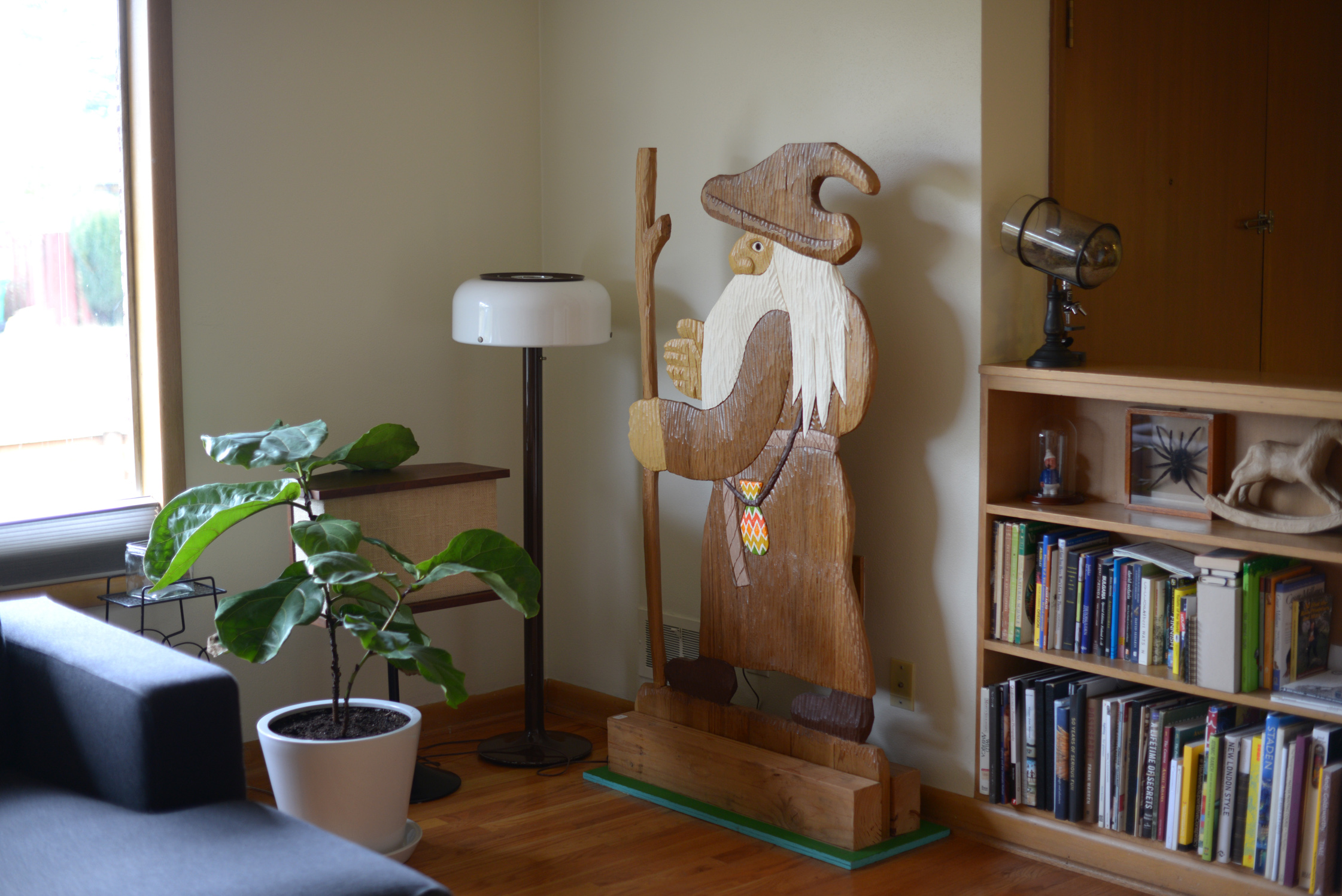
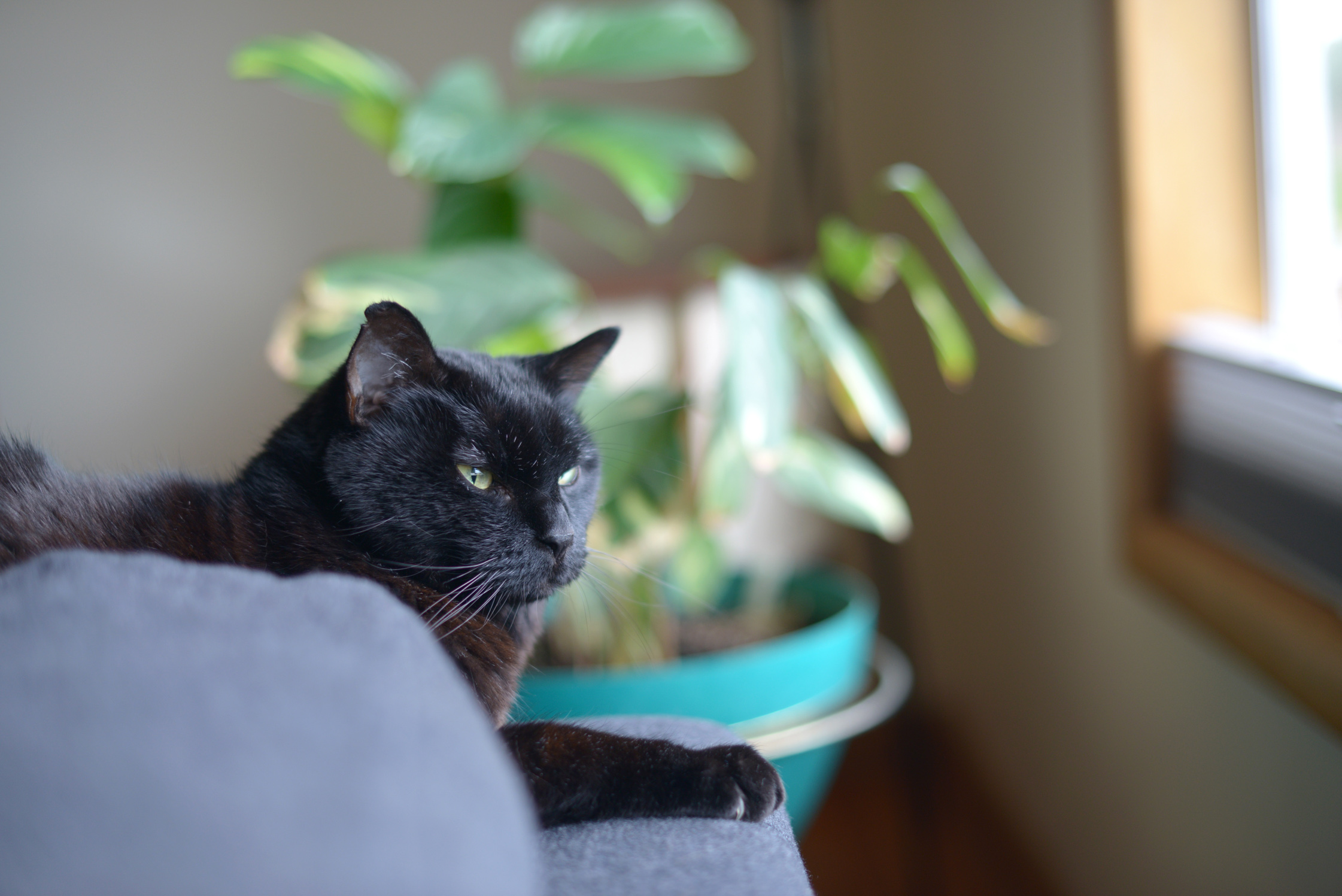
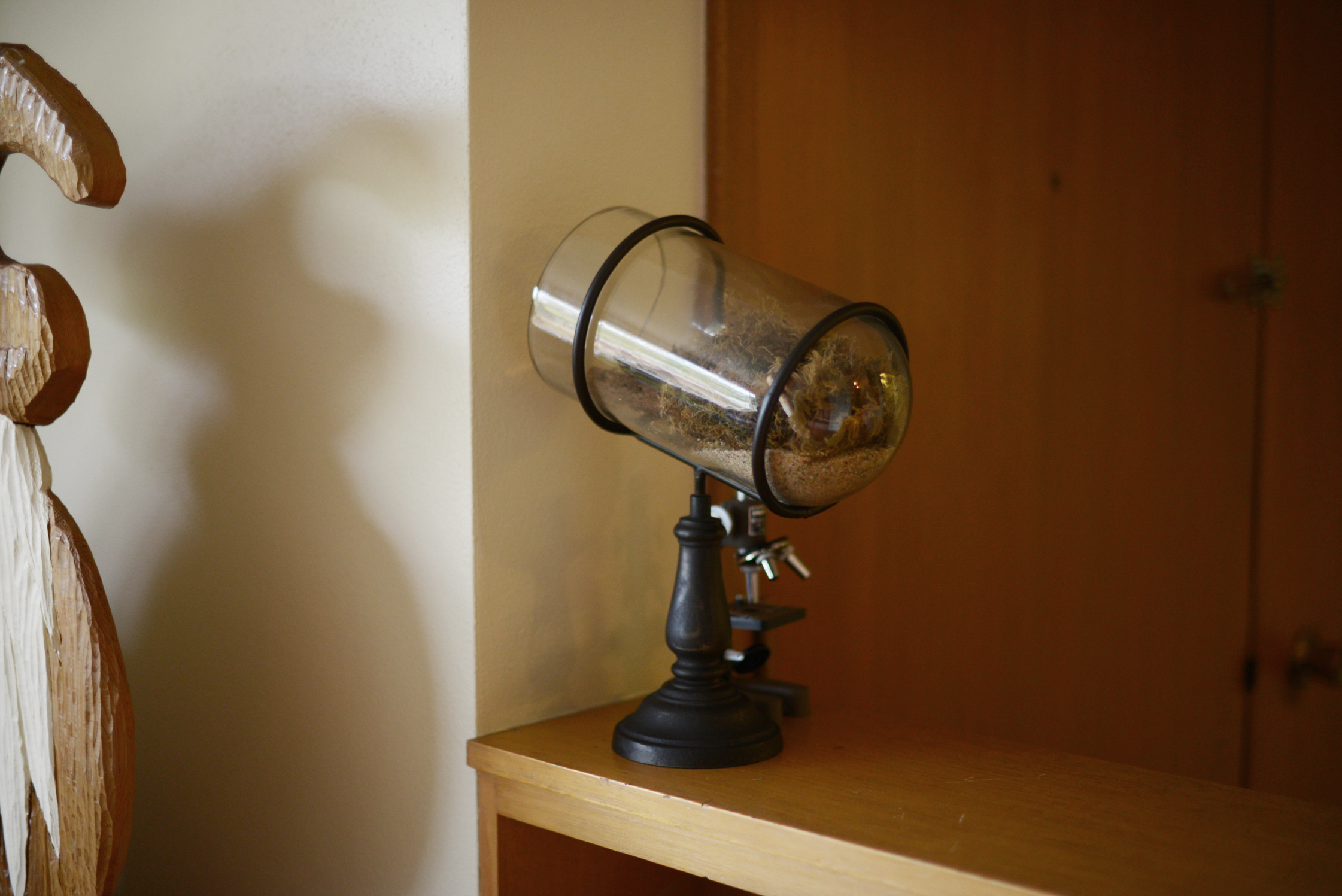
-
Did you have the same kind of coffee journey, Rebecca?
Rebekah: Coffee? I can’t even remember when I started drinking coffee. My father would always drink almost an entire pot to himself, so I grew up drinking coffee at a really young age—probably too young. By the time I could get a job in high school, I remember drinking 16 to 20 ounces of coffee just before work everyday. I’ve always just loved, loved, loved coffee. I was into better coffee, but I hadn’t even given it a thought, like, “Can we make better coffee?” until Wille started making coffee at home. I thought it was really nice, being spoiled like this and having all these drinks at home, but I also really enjoyed going out for coffee. The whole experience and the social aspect of going and hanging out in a café with friends interests me a lot.
Wille: Yeah, coffee is a social thing. You can have all these things at home, but even if I could make the best coffee at home, I would still rather go out to get a coffee at a place because you’re out around people, or with friends. -
What made you decide to move from roasting and brewing at home to opening a café?
Wille: I was burned out of snowboarding at that moment and I wanted to move on. So for me, having a regular, stable job was appealing. I didn’t have to travel, I could hang out in Portland, I could actually put food in my fridge and eat it, and I could have routine in my life, you know, because for fifteen years I lived out of a suitcase, seriously. I had my bags with me constantly, a huge duffle bag and a bag for snowboarding. I’d be in hotel rooms, someone’s couch, or I’d rent a place and be there for two or three months. So it was just the idea of having a sort of routine seemed so nice. I was like, “I don’t care, I’ll roast coffee there and serve it.” I never went through a mind that I wanted to have some sort of freedom again. It was more that it worked and was fun. It was more like fun in the beginning, the experience of just making coffee, but then also at some point it was like, I had to make money.
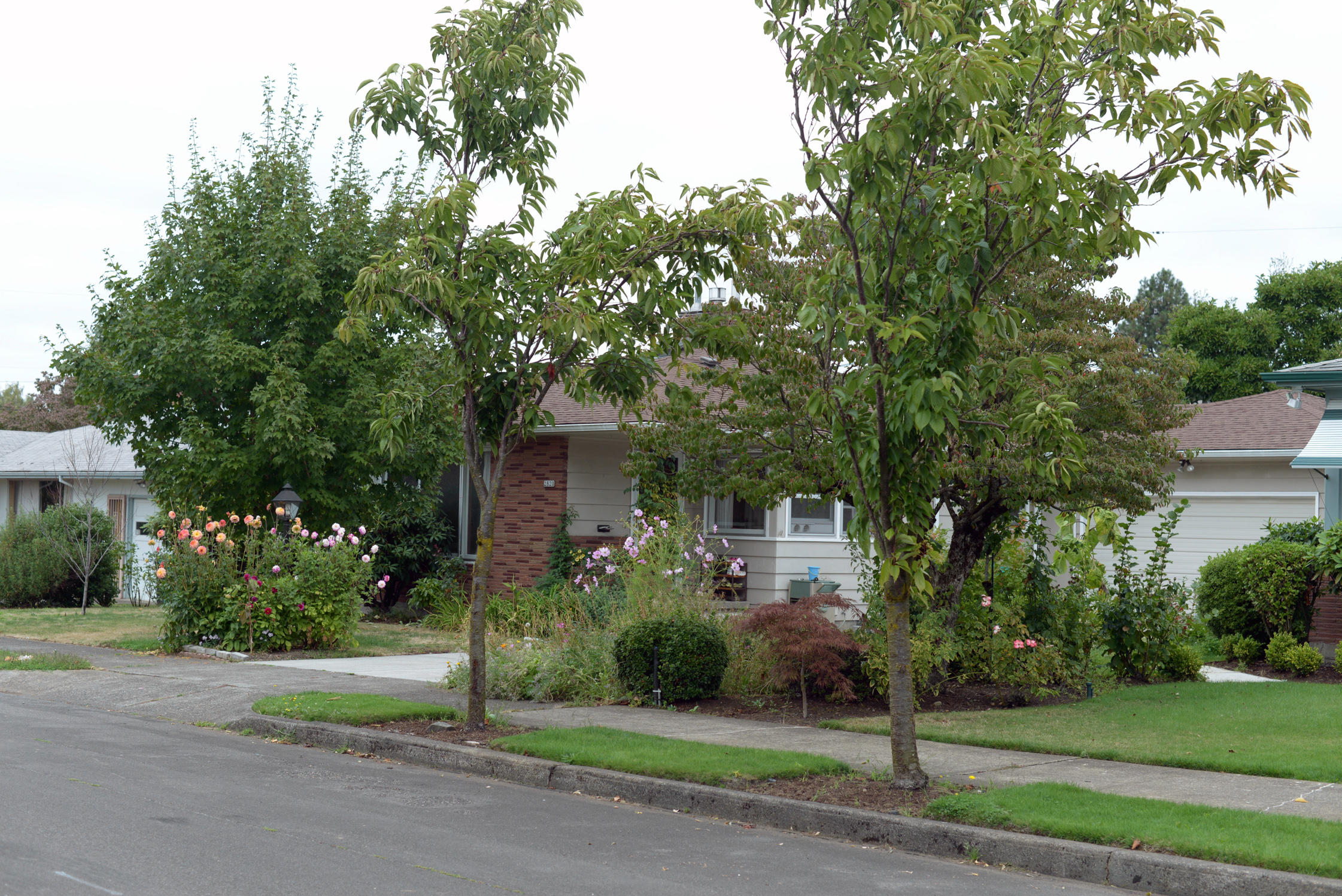
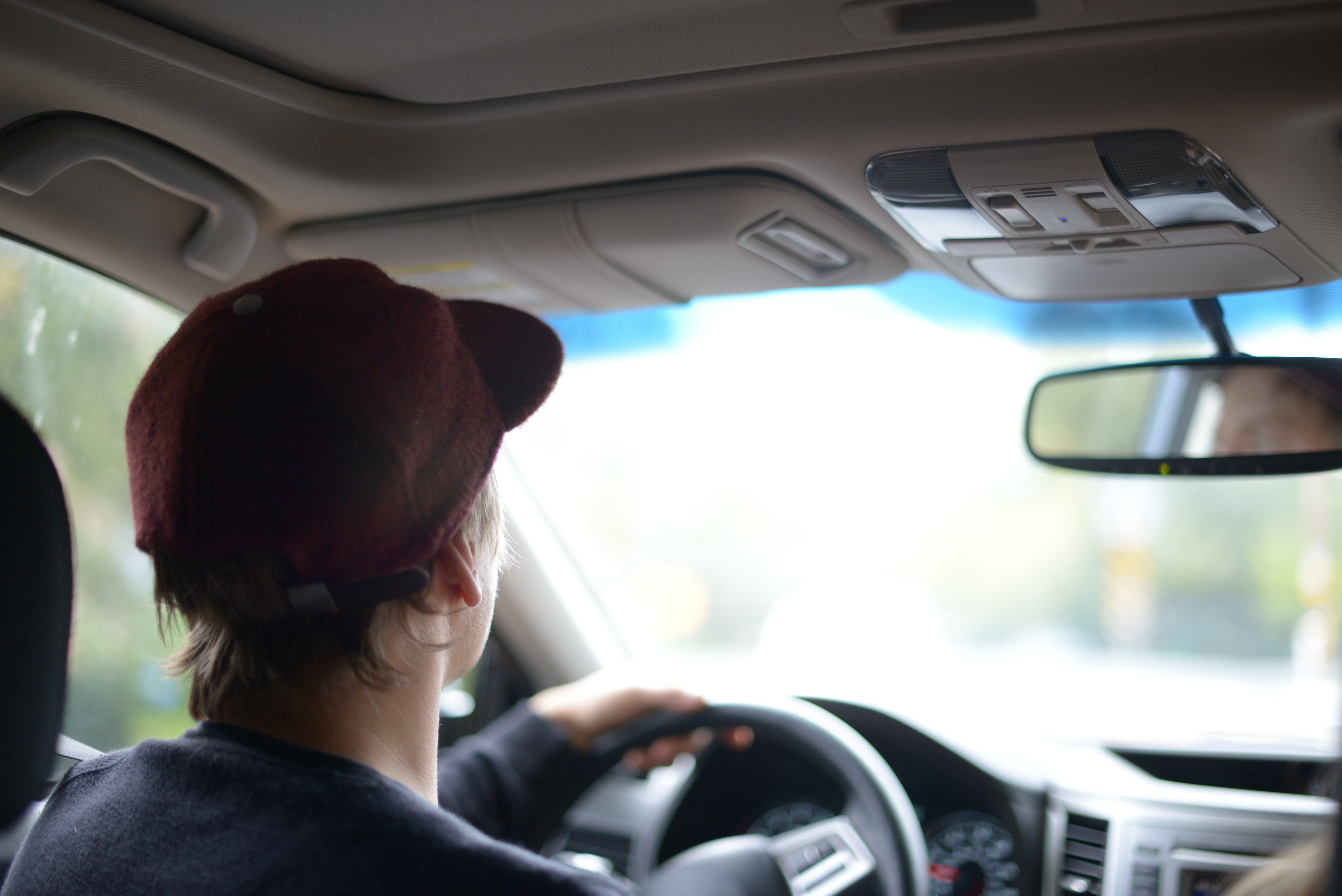
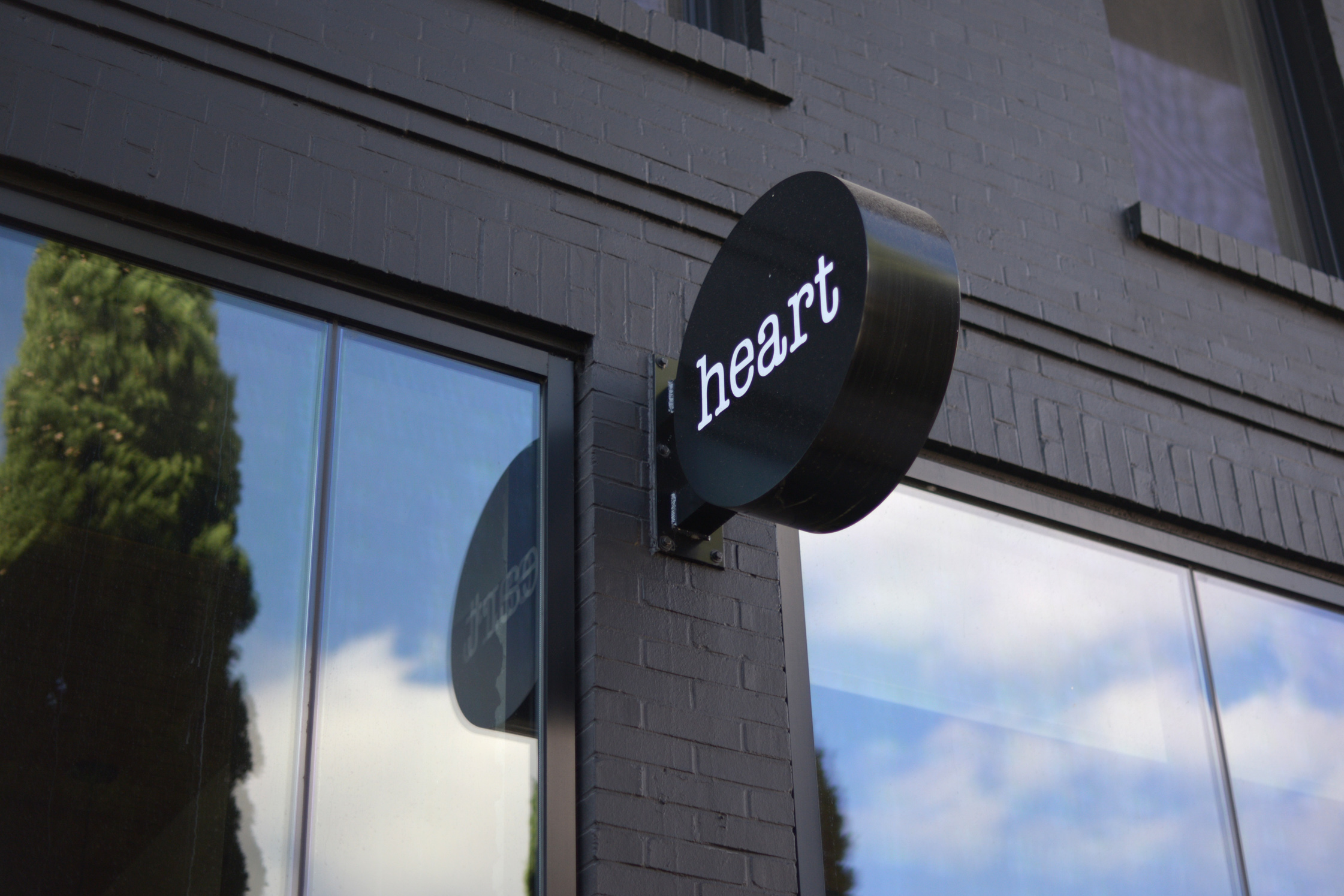
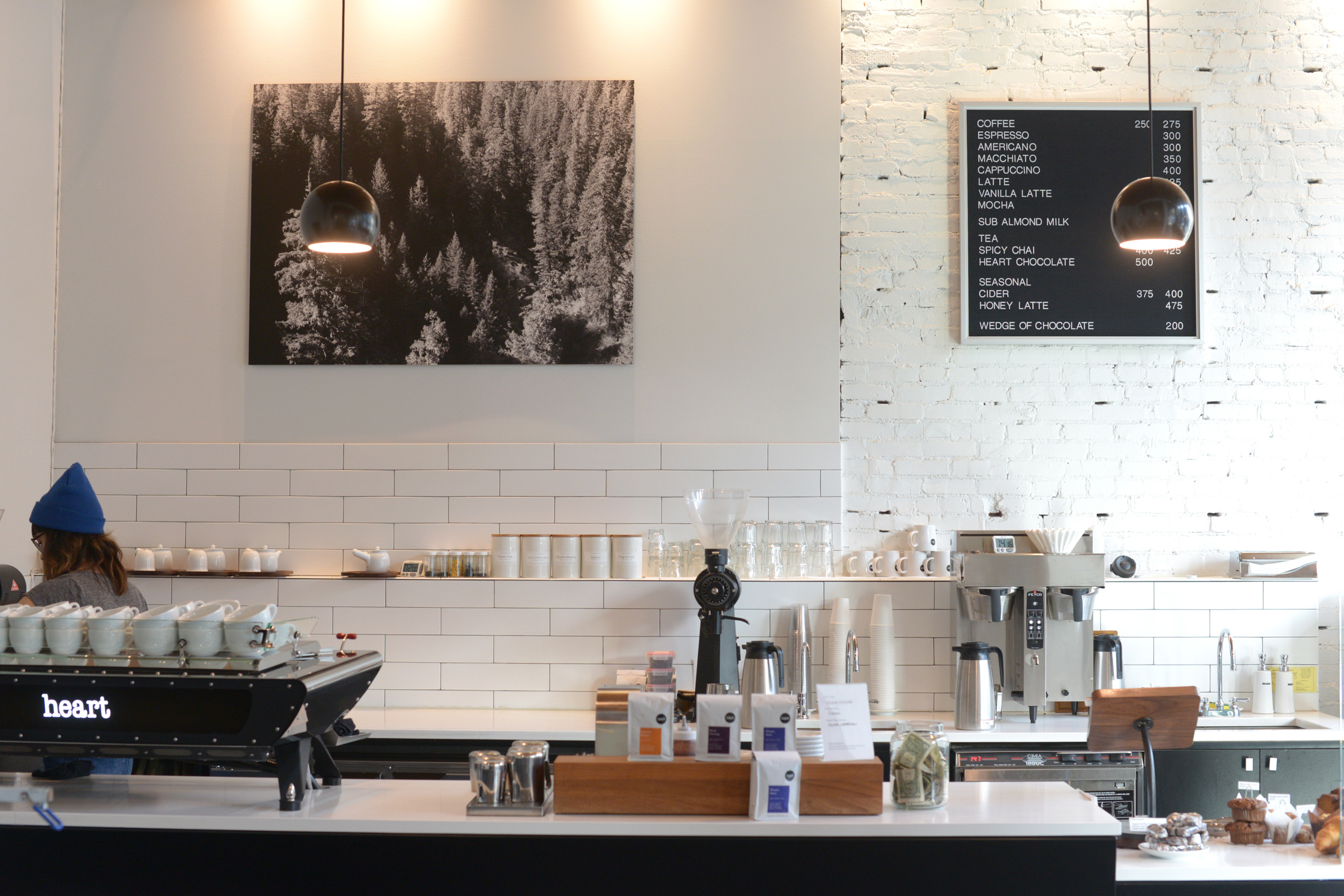
-
How did you design both of your cafés?
Wille: The first café is kind of a collaboration. I had an idea of what I wanted it to look like, and I asked my friend Jeff Casey, who is an architect and engineer who now works for Santa Cruz Bicycles, to draw up some plans. We sat down together and came up with ideas, trying to get something a little more creative. He gave me the plans, but then I had to figure out how to get those built, so we worked with Dave Seone, who is now a cinematographer in the snowboarding community and beyond. He works with wood and metal as a “pro hobby”—he’s really good and pretty much did all the custom work. It was a little different for our newer space downtown, because I already had an idea of what I wanted the place to look like, so it was pretty straightforward, with mostly Rebekah and I choosing the materials. We wanted it to tie in with the first location, but to be the more grown-up version. The original café has similar things, but it’s a little more industrial, while this is just more modern.
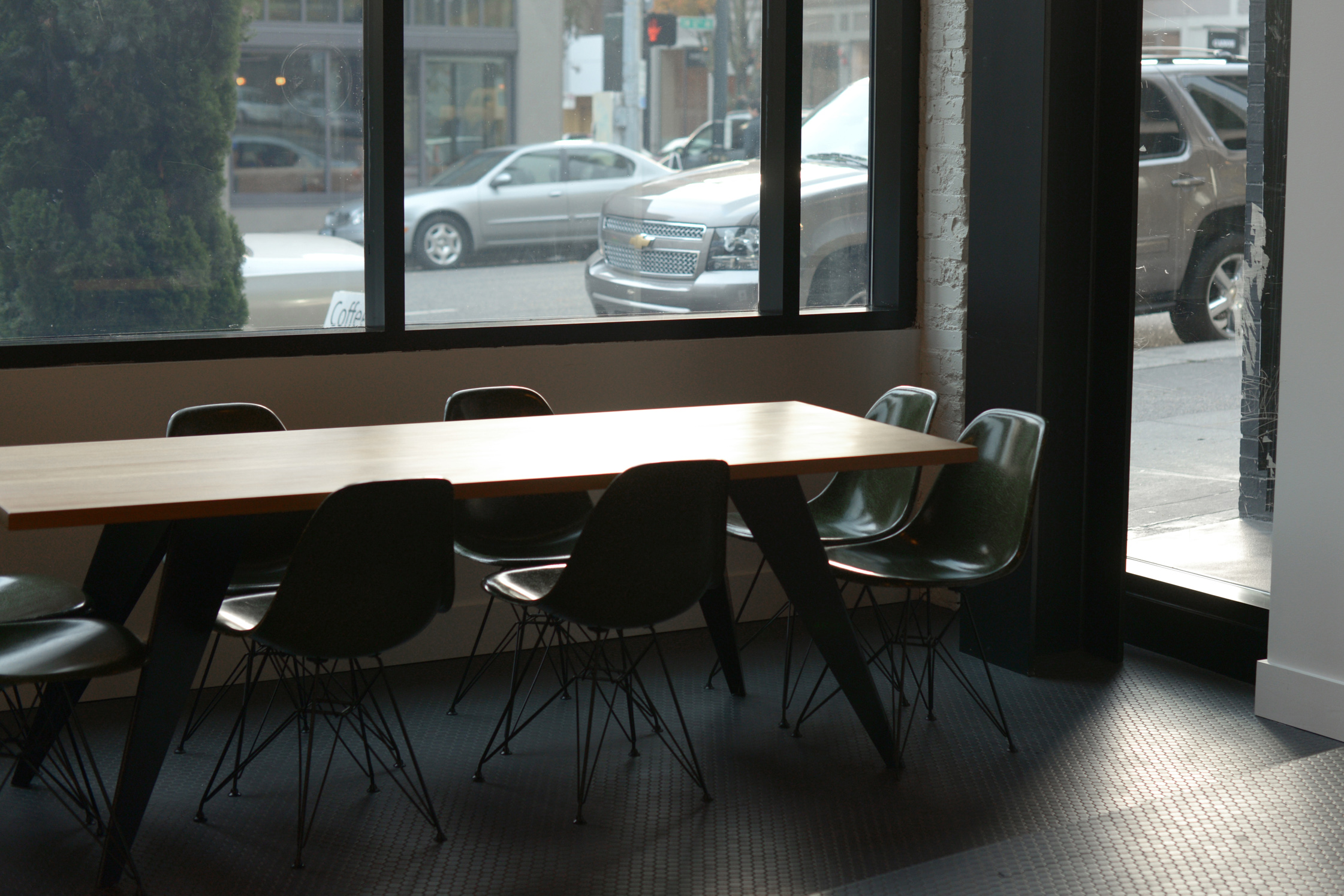
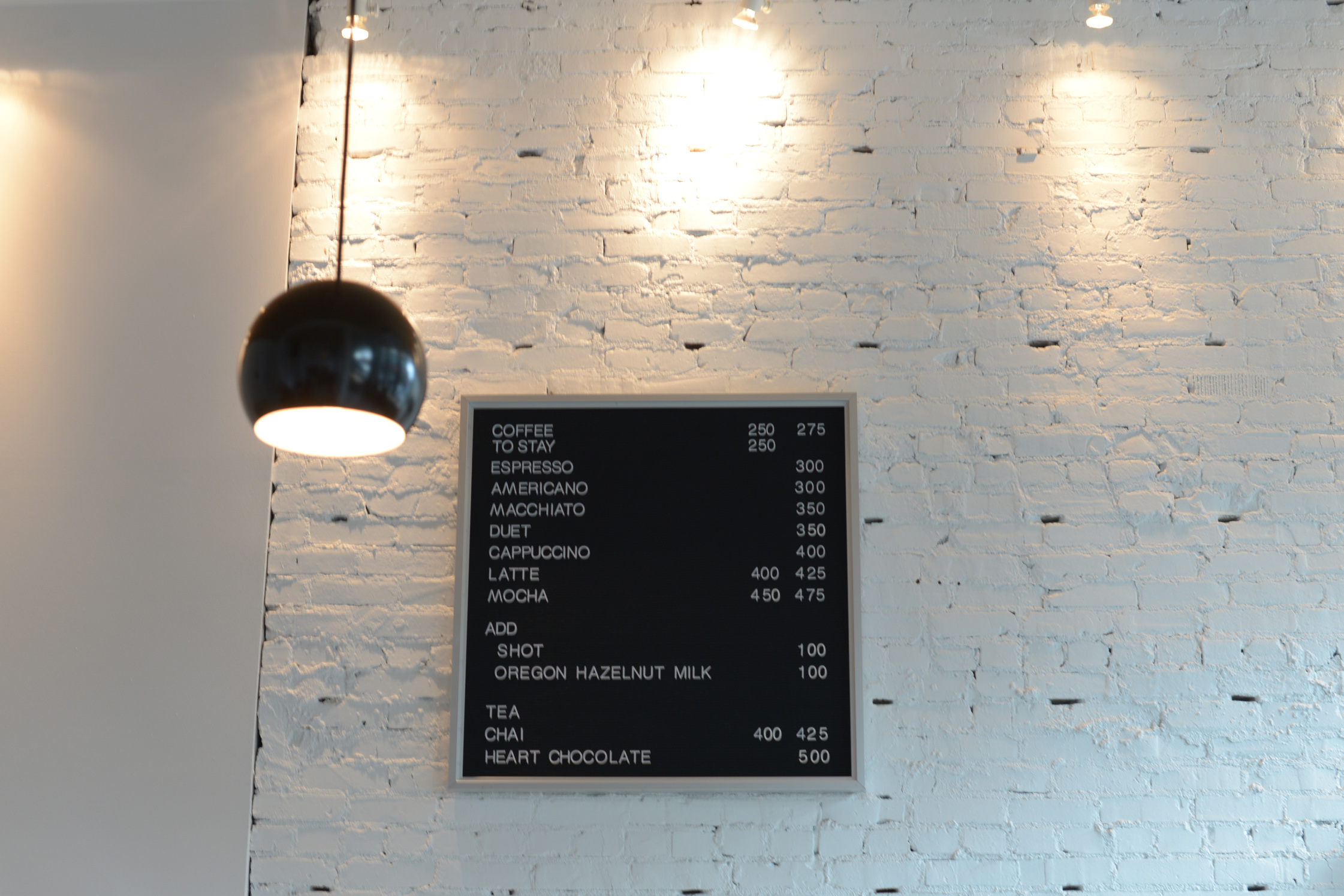
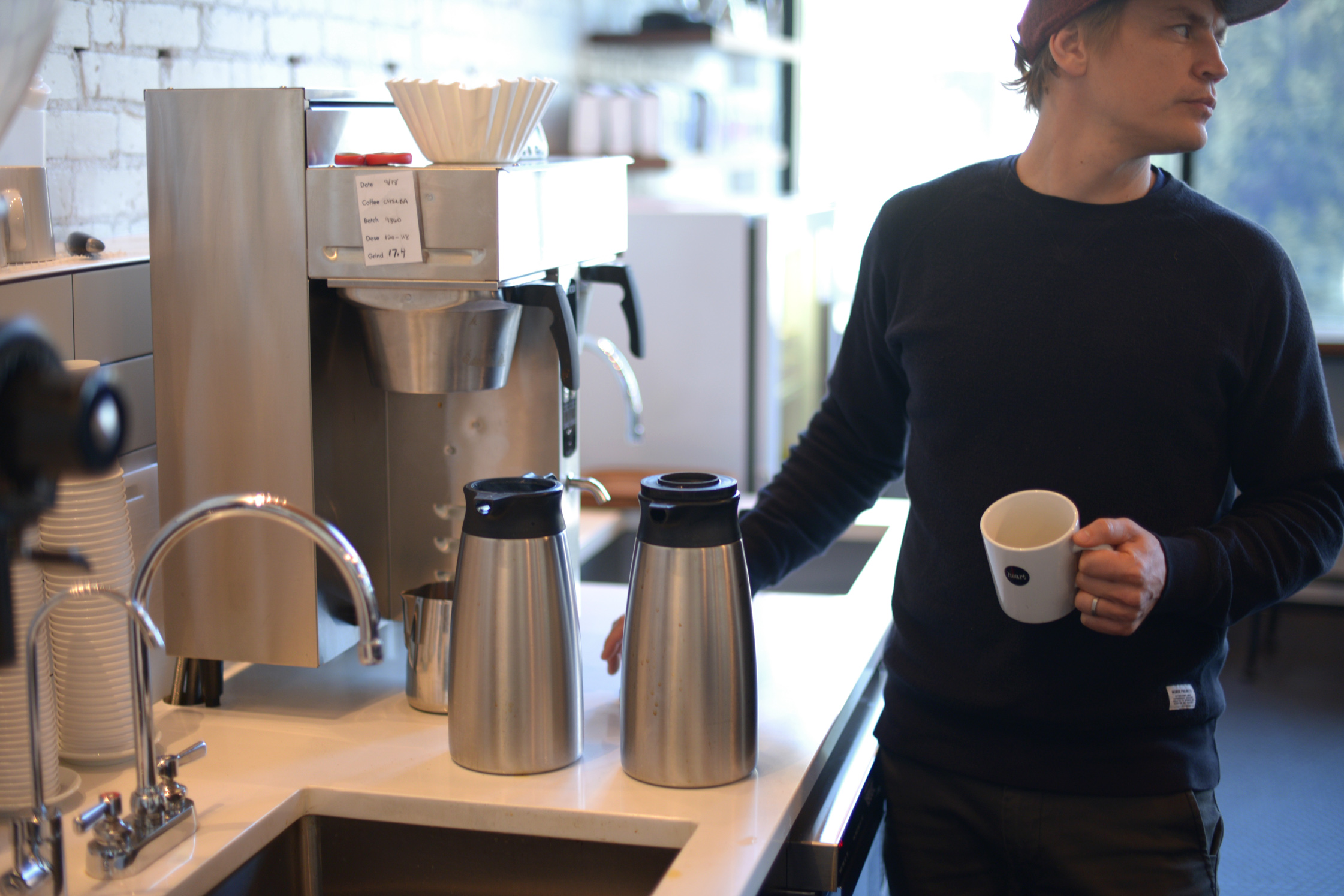
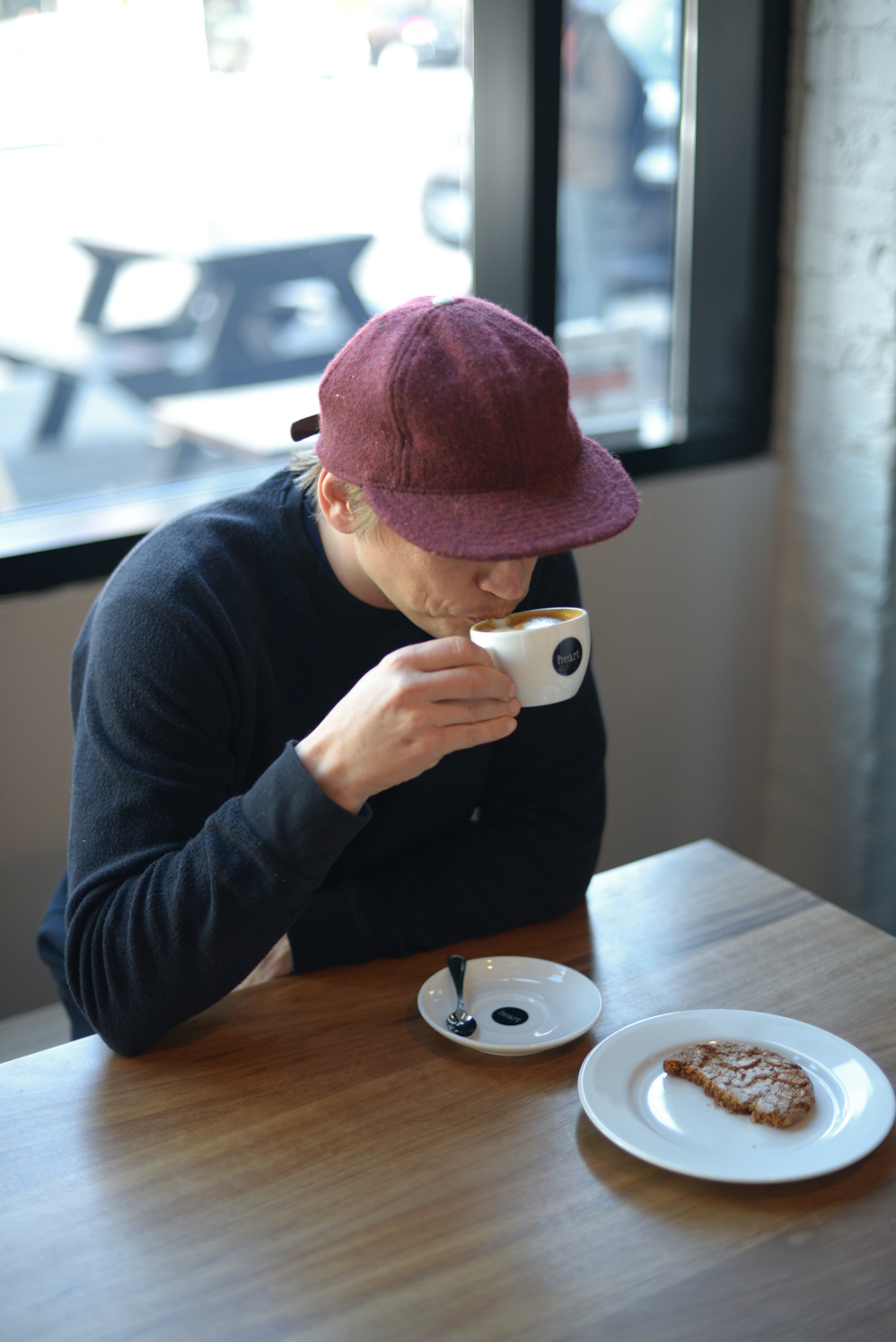
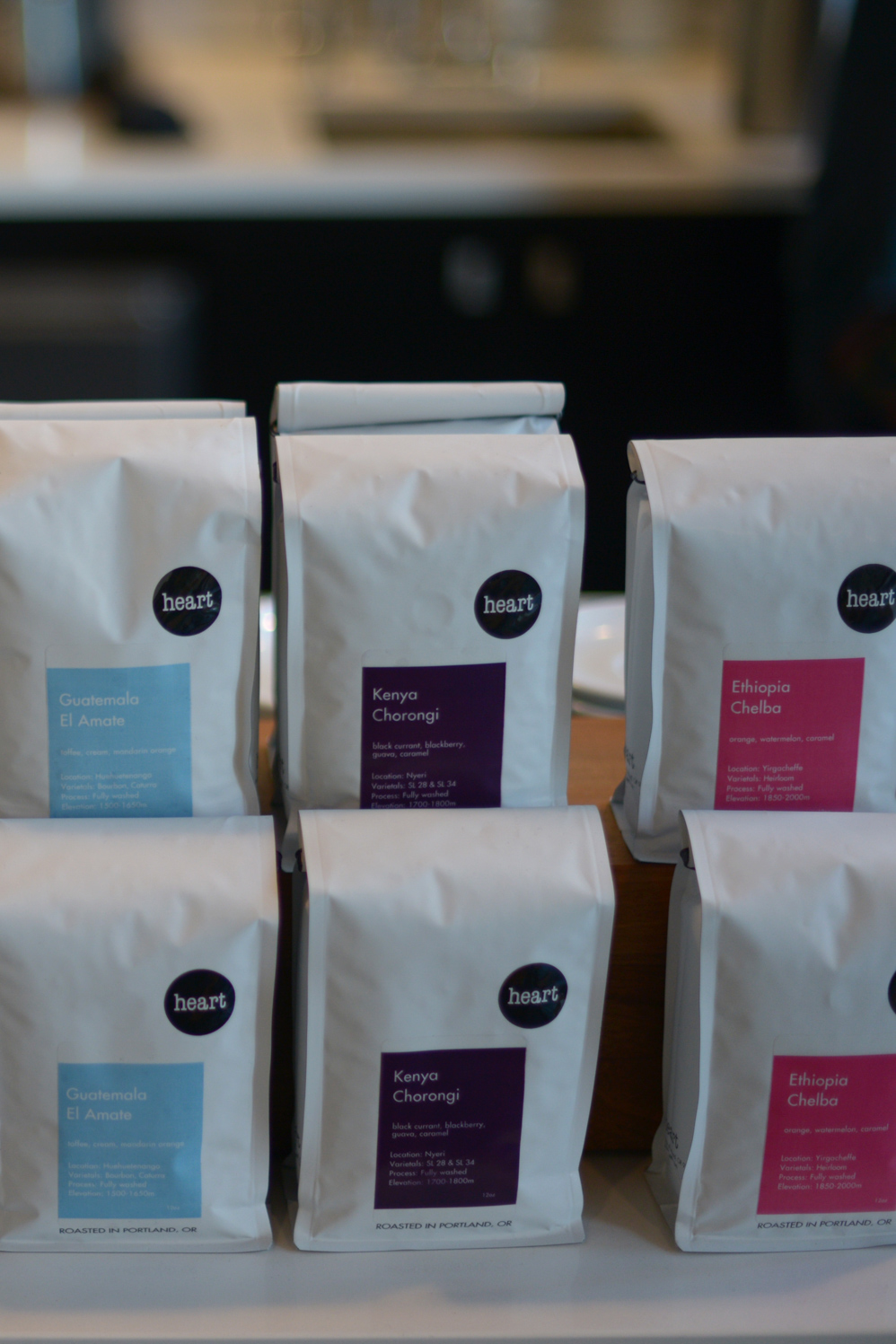
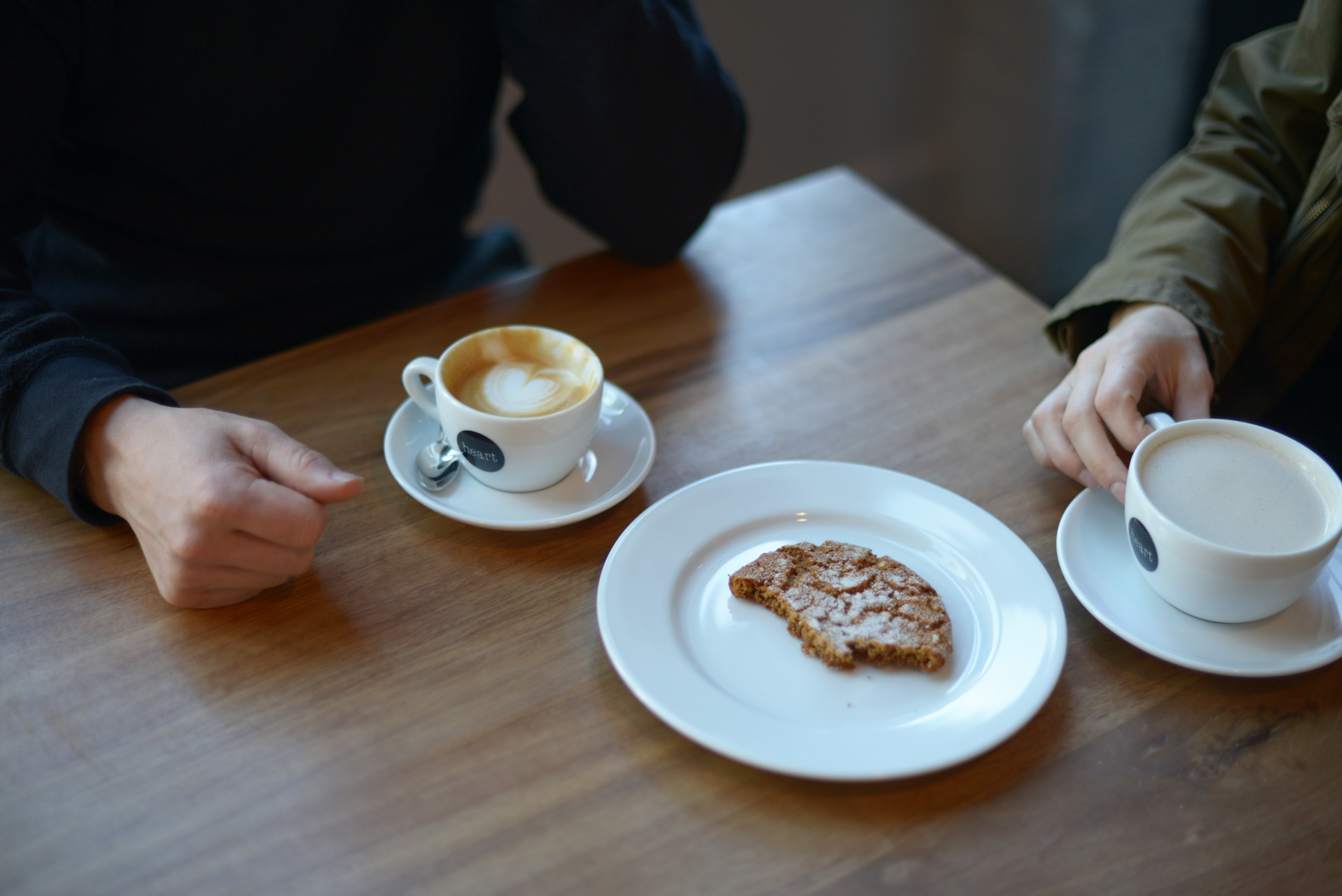
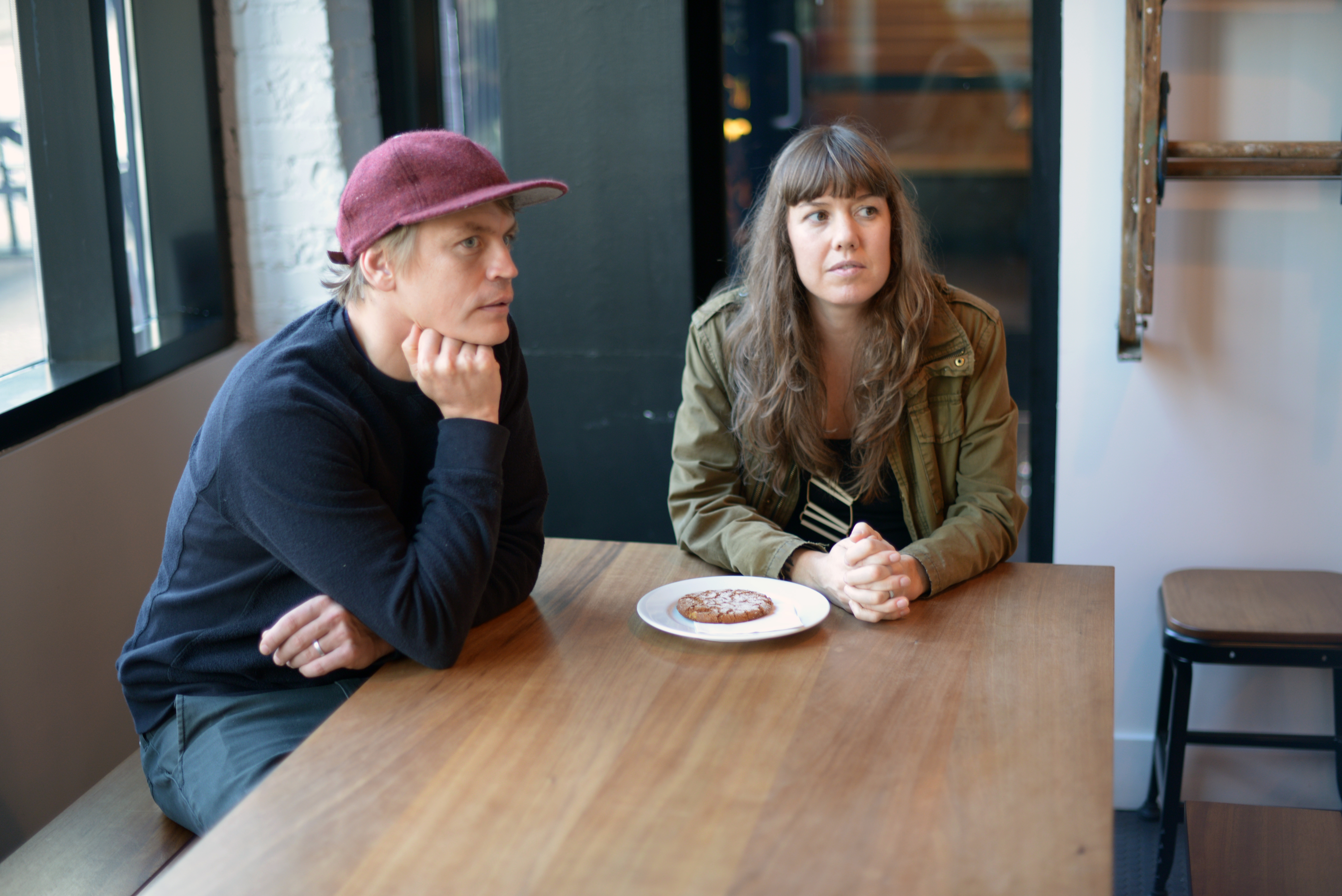
-
Do you apply the same approach to design in the way you decorate your home and the furniture you look for?
Rebekah: Before we moved into this house…
Wille: …we had so much stuff.
Rebekah: We just had so much. Both of us were obsessed with finding things. I owned a house, and he owned a house, and we both filled the houses…
-
So when you combined the two, they just overflowed.
Rebekah: Right. And if you walked into either of our homes at the time, it was not cluttered. It was pretty minimal, but still too much.
Wille: It was put away in basements and garages. I had like, a garage full of chairs, tables, weird decorations, and random, industrial things…
Rebekah: Lighting, tons of lighting.
Wille: We ended up selling a lot of those things.
Rebekah: Right, and just kept whatever worked in the house. I think neither one of us likes a ton of things: pretty minimalistic, but still comfortable. So I would say kind of, yeah. Thinking about how the café should look, you want it to be an extension of what you like. If you were to invite somebody into your home, it would also give you the same feeling as if you were hanging out in the café.
Wille: I wouldn’t say it’s exactly an extension, but at the same time, I want it to be a comfortable environment, where I go to work and feel comfortable, like I can hang out there. I think it makes a difference for the employees too. It’s the small things, the details sometimes. Whether it’s the design, or food, or coffee, or whatever, I think those small, little things always add up.
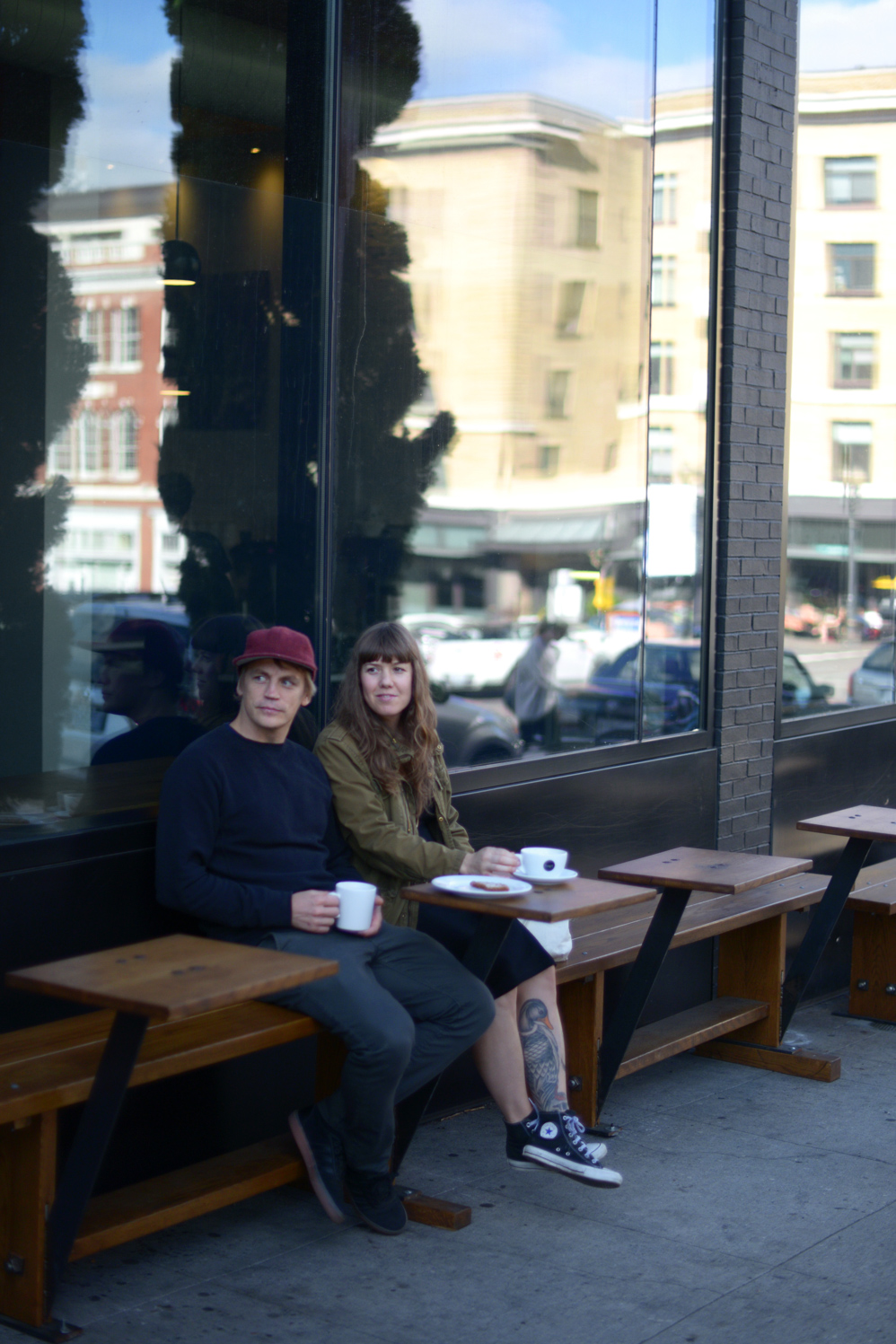
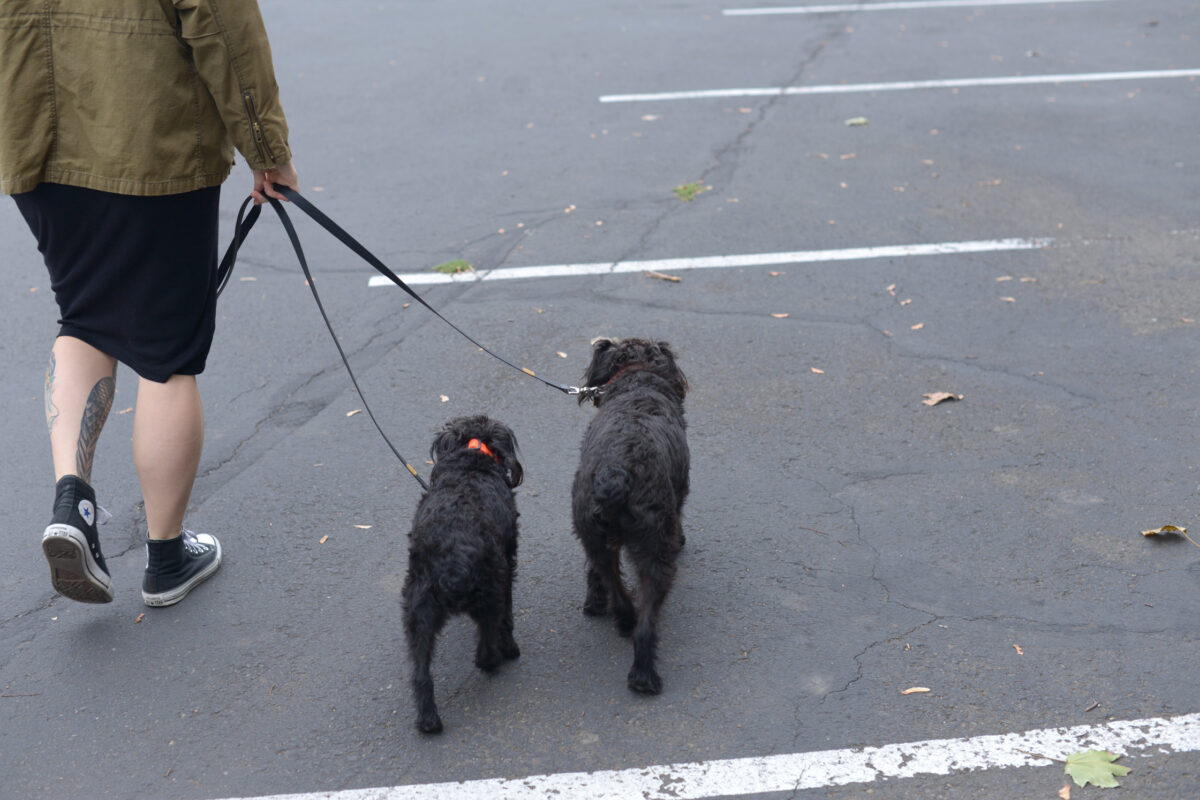
-
Do you find that your background in professional snowboarding helped to prepare you for that? When practicing a trick or trying something new, you repeat the same actions, while refining the details. Do you see a parallel between that and approaching coffee and getting the roast just right?
Wille: Yeah, obviously you have to. It’s very rigorous, constantly doing the same thing. For some people it can be monotonous, roasting, because it’s like, very lonely. You’re in front of the machine, you’re looking at numbers, doing the same thing over and over and making small tweaks. So yes, from snowboarding, knowing that you need to repeat those things until your brain pretty much doesn’t have to think about it, it just happens. Unfortunately, it’s not the same way with roasting. You can’t go by feel base. It’s more about documenting data and then tasting it on a cupping table and examining the taste. I do think that having that background has made me very stubborn, in a way. I have a lot to give before I would ever give up, because I know it takes so much to accomplish something. With physical sports, you have to have so many hours of practicing, but you also have to learn how to learn, and I think that’s the key. If you can take that learning process into whatever you’re doing next in life, and you can focus on that enough, then you can accomplish that. People can talk about being gifted and so on, but I think that it’s even more important to understand how to learn. That’s really where the key comes into play. I know that things take a lot of hours and I’m not afraid of it. Part of it is soothing for me; I’m kind of obsessed with it. Like I’m going to talk about coffee all day long, even to the point where she’s like, “Can we not talk about that?”
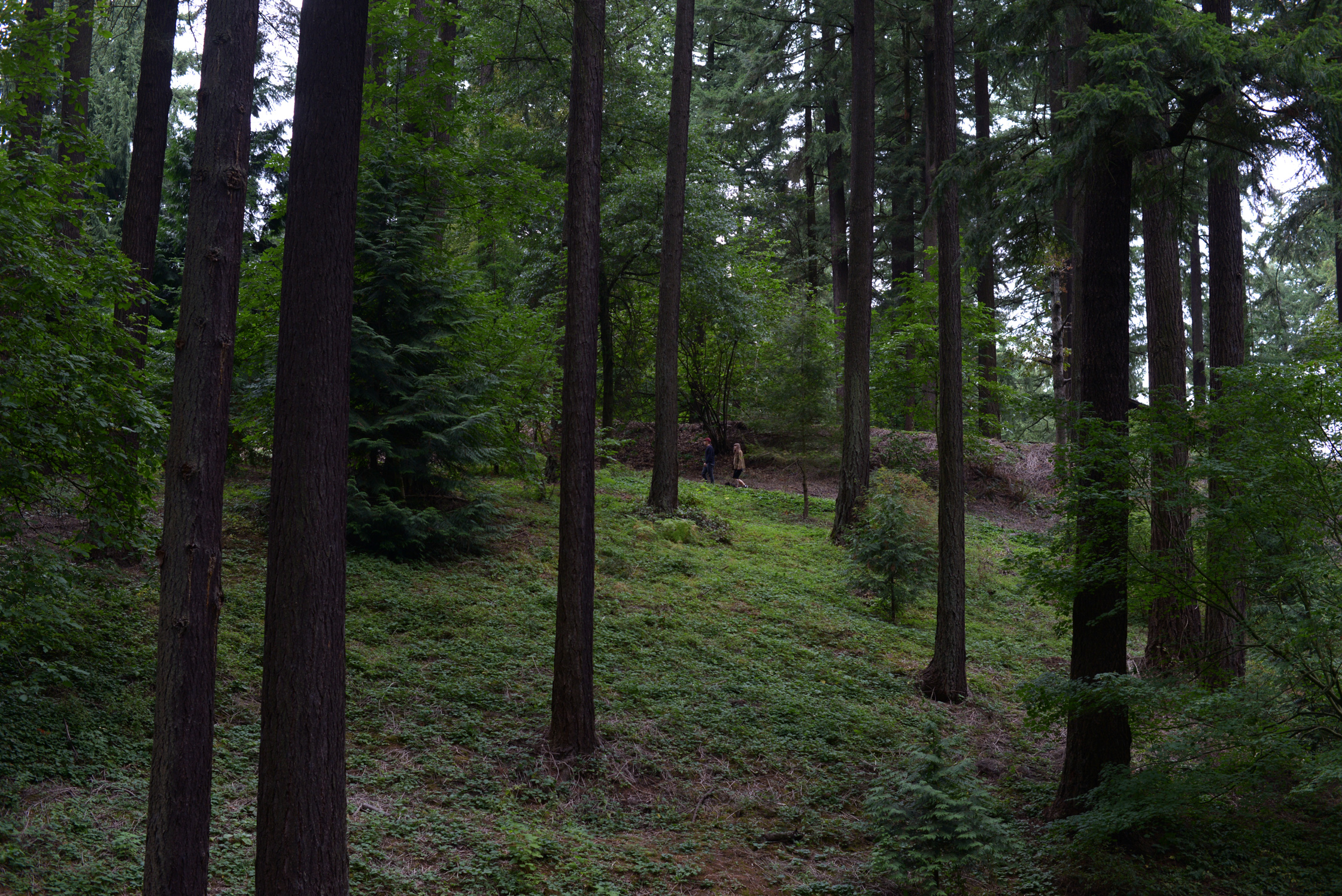
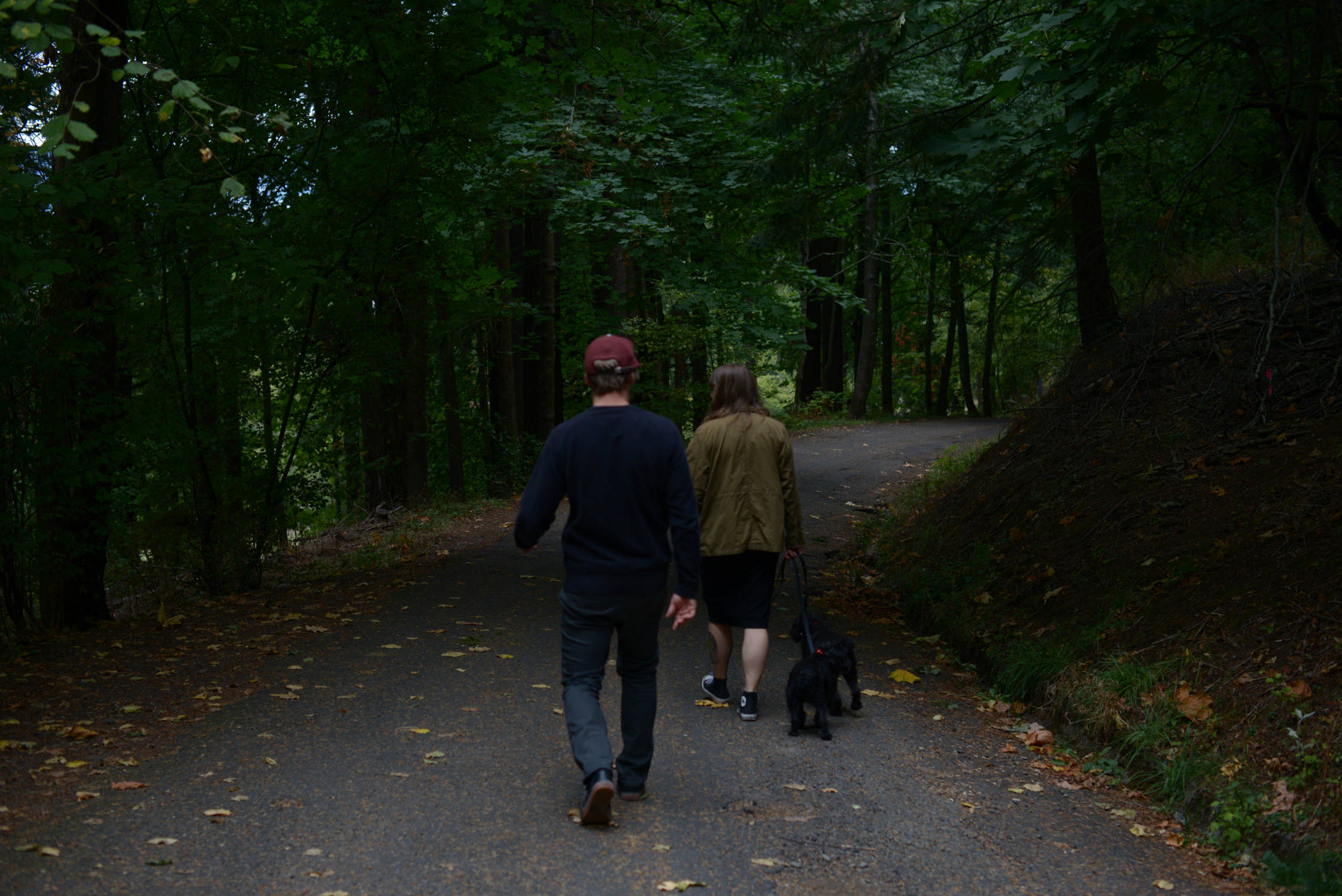
-
Outside of work, how do you spend your time? What do you do in Portland and do you get outside of the city at all?
Wille: We go on hikes in the Gorge, or maybe go snowboarding if it’s the wintertime. We’ll go on bike rides and go to the river sometimes. Every once in a while we go to the coast, but not too much. I think we spend a lot of time also eating at different restaurants.
Rebekah: The Gorge has been the biggest one, though. We explore there a lot.
Wille: A lot of the time we just take a backpack, water, maybe a camera, and just go hike. Not even necessarily knowing where we’re going or how long we’ll go for, and then all of a sudden it will have been a 15 mile hike, and the day went by. When we drive back, we’ll maybe stop at Hood River and have food there, or we’ll come back and go eat at some restaurant. That clears my head, and I’m ready for the next week’s work. Just kind of recharging my batteries. To have your mind somewhere else from the city or work, that’s really healthy.
Rebekah: It’s just nice how close it is, too. We live in such a pretty part of the country. We’re so spoiled.
Wille: I mean, there are so many places to go here and so many different types of terrain. I always forget that, and then when we find a new hike there will be all these crazy lakes, or waterfalls, or rocks we can climb, or ridges, or this beautiful forest, or whatever. It really is a great place.
Rebekah: Wille also plays futsal and soccer a lot outside of work. He does that like three times a week, so that’s become an obsession.
Wille: Yeah, a little bit. I think it’s good to have other things than just what you do for a living. Anything you can put some energy into. Then, you can go back into the other thing with a fresh thought.
Wille and Rebekah, thanks a lot for the nice chat at your apartment!
If you want to know more about their café, head over to Heart Coffee Roasters.
Have a look at our interviews in Portland – we’ve been exploring this city more and more. Also, browse through the portraits we’ve published together with Zeit so far.
Photography: Joanna Han
Interview: Alec Recinos
